The newest registered user is outlook_of_joeie69
Our users have posted a total of 48839 messages in 7204 subjects

WORLD CLOCK
THE TRUMP DUMP .....
Valley of the Sun Casual Club :: ANYTHING ELSE ? :: HOW THE FUCK MUCH WILL AMERICANS & THE WORLD TOLERATE ?
 THE TRUMP DUMP .....
THE TRUMP DUMP .....
Sexual-Assault Allegations
Where and when: Various, 1970s-2005 .The dirt: Even before the release of a 2005 video in which he boasted about sexually assaulting women—“Grab them by the ***. You can do anything,” he said, as well as “I just start kissing them. It’s like a magnet. Just kiss. I don’t even wait. And when you’re a star they let you do it. You can do anything”—there’s a long line of allegations against Trump. Jill Harth says Trump assaulted her in the 1990s. Trump’s ex-wife Ivana Trump once suggested he had raped her, thoughshe has since recanted her story. Former Miss Utah Temple Taggart said he kissed her on the lips inappropriately. But since the release, more women have come forward. Two told The New York Times that Trump had assaulted them, one saying he tried to put his hand up her skirt on a flight in the 1970s and another saying he forcibly kissed her. A Florida woman says Trump groped her. A formerPeople reporter recounted an alleged assault at his Mar-a-Lago debate, and says he told her, “You know we’re going to have an affair, don’t you?” Several former teen pageant contestants said Trump walked in on them while they were naked or partially dressed.
The Beauty Pageant Scandals
Where and when: Various, 1992-present
The dirt: The Boston Globe’s Matt Viser reports on the mess of the American Dream pageant in 1992. After years of attending beauty pageants—Trump seems to have always enjoyed the company of beautiful, scantily clad women—he decided he wanted to get in on the business himself, meeting with George Houraney and Jill Harth, a couple that ran the American Dream pageant. It was an ill-fated effort. Harth and Houraney alleged that Trump started making passes at her almost immediately. On one occasion, Trump allegedly asked them to bring some models to a party. Harth alleges Trump groped her at the party. In a limo afterward, another model said she heard him say that “all women are bimbos” and most “gold diggers.” Trump reportedly joined another model in bed, uninvited, late at night. On other occasions, he forced Harth into bedrooms and made passes at her, she said. But after the contest, Trump broke off dealings. Harth sued Trump, alleging sexual misbehavior, while the couple together sued him for breach of contract. In the suit, they also alleged that Trump had kept black women out of the pageant.
Racial Housing Discrimination
Where and when: New York City, 1973-1975
The dirt: The Department of Justice sued Trump and his father Fred in 1973 for housing discrimination at 39 sites around New York. “The government contended that Trump Management had refused to rent or negotiate rentals ‘because of race and color,’” The New York Times reported. “It also charged that the company had required different rental terms and conditions because of race and that it had misrepresented to blacks that apartments were not available.” Trump called the accusations “absolutely ridiculous.”
Mafia Ties
Where and when: New York and Atlantic City, 1970s- ?The dirt: Trump has been linked to the mafia many times over the years, with varying degrees of closeness. Many of the connections seem to be the sorts of interactions with mobsters that were inevitable for a guy in the construction and casino businesses at the time. For example, organized crime controlled the 1980s New York City concrete business, so that anyone building in the city likely brushed up against it. While Trump has portrayed himself as an unwitting participant, not everyone agrees. There have been a string of other allegations, too, many reported by investigative journalist Wayne Barrett. Cohn, Trump’s lawyer, also represented the Genovese crime family boss Tony Salerno. Barrett also reported a series of transactions involving organized crime, and alleged that Trump paid twice market rate to a mob figure for the land under Trump Plaza in Atlantic City. Michael Isikoff has also reported that Trump was close to Robert LiButti, an associate of John Gotti, inviting him on his yacht and helicopter. In one case, Trump’s company bought LiButti nine luxury cars.
Trump University
Where and when: 2005-2010, online
The dirt: In 2005, the Trump announced an eponymous “university” to teach his real-estate development secrets. Students ponied up as much as $35,000—some after being suckered in by slick free “seminars”—to learn how to get rich. One ad promised they would “learn from Donald Trump’s handpicked instructors, and that participants would have access to Trump’s real estate ‘secrets.’” In fact, Trump had little to do with the curriculum or the instructors. Many of the “students” have since complained that Trump U. was a scam. At one time, it had some prestigious instructors, but over time the “faculty”became a motley bunch of misfits. (It was also never really a “university” by any definition, and it changed its name to the “Trump Entrepreneur Initiative,” because as it happened, the school was violating New York law by operating without an educational license.)
Tenant Intimidation
Where and when: New York City, 1982-1986The scoop: In 1981, Trump scooped up a building on Central Park South, reasoning that the existing structure was a dump, but the land it was on would be a great place for luxury condos. Trump’s problem was that the existing tenants were—understandably and predictably—unwilling to let go of their rent-controlled apartments on Central Park. Trump used every trick in the book to get them out. He tried to reverse exceptions the previous landlord had given to knock down walls, threatening eviction. Tenants said he cut off heat and hot water. Building management refused to make repairs; two tenants swore in courtthat mushrooms grew on their carpet from a leak. Perhaps Trump’s most outlandish move was to place newspaper ads offering to house homeless New Yorkers in empty units—since, as Trump wrote in The Art of the Deal, he didn’t intend to fill units with permanent residents anyway. City officials turned him down, saying the idea did not seem appropriate. Typically, Trump also sued tenants for $150 million when they complained.
The Four Bankruptcies
Where and when: 1991, 1992, 2004, 2009The dirt: Four times in his career, Trump’s companies have entered bankruptcy.
- In the late 1980s, after insisting that his major qualification to build a new casino in Atlantic City was that he wouldn’t need to use junk bonds, Trump used junk bonds to build Trump Taj Mahal. He built the casino, but couldn’t keep up with interest payments, so his company declared bankruptcy in 1991. He had to sell his yacht, his airline, and half his ownership in the casino.
- A year later, another of Trump’s Atlantic City casinos, the Trump Plaza, went bust after losing more than $550 million. Trump gave up his stake but otherwise insulated himself personally from losses, and managed to keep his CEO title, even though he surrendered any salary or role in day-to-day operations. By the time all was said and done, he had some $900 million in personal debt.
- Trump bounced back over the following decade, but by 2004, Trump Hotels and Casino Resorts was $1.8 billion in debt. The company filed for bankruptcy and emerged as Trump Entertainment Resorts. Trump himself was the chairman of the new company, but he no longer had a controlling stake in it.
- Five years later, after the real-estate collapse, Trump Entertainment Resorts once again went bankrupt. Trump resigned from the board, but the company retained his name. In 2014, he successfully sued to take his name off the company and its casinos—one of which had already closed, and the other of which was near closing.
The Undocumented Polish Workers
Where and when: New York City, 1980The dirt: In order to construct his signature Trump Tower, the builder first had to demolish the Bonwit Teller store, an architecturally beloved Art Deco edifice. The work had to be done fast, and so managers hired 200 undocumented Polish workers to tear it down, paying them substandard wages for backbreaking work—$5 per hour, when they were paid at all. The workers didn’t wear hard hats and often slept at the site. When the workers complained about their back pay, they were allegedly threatened with deportation. Trump said he was unaware that illegal immigrants were working at the site.
Alleged Marital Rape
Where and when: New York City, 1989The dirt: While married to Ivana Trump, Donald Trump became angry at her—according to a book by Harry Hurt, over a painful scalp-reduction surgery—and allegedly forcibly had sex with her. Ivana Trump said during a deposition in their divorce case that she “felt violated” and that her husband had raped her. Later, Ivana Trump released a statement saying: “During a deposition given by me in connection with my matrimonial case, I stated that my husband had raped me. [O]n one occasion during 1989, Mr. Trump and I had marital relations in which he behaved very differently toward me than he had during our marriage. As a woman, I felt violated, as the love and tenderness, which he normally exhibited towards me, was absent. I referred to this as a ‘rape,’ but I do not want my words to be interpreted in a literal or criminal sense.”
Breaking Casino Rules
Where and when: New York and New Jersey, various
The dirt: Trump has been repeatedly fined for breaking rules related to his operation of casinos. In 1990, with Trump Taj Mahal in trouble, Trump’s father Fred strolled in and bought 700 chips worth a total of $3.5 million. The purchase helped the casino pay debt that was due, but because Fred Trump had no plans to gamble, the New Jersey gaming commission ruled that it was a loan that violated operating rules. Trump paid a $30,000 fine; in the end, the loan didn’t prevent a bankruptcy the following year. As noted above, New Jersey also fined Trump $200,000 for arranging to keep black employees away from mafioso Robert LiButti’s gambling table. In 1991, the Casino Control Commission fined Trump’s company another $450,000 for buying LiButti nine luxury cars. And in 2000, Trump was fined $250,000 for breaking New York state law in lobbying to prevent an Indian casino from opening in the Catskills, for fear it would compete against his Atlantic City casinos.
Antitrust Violations
Where and when: New Jersey, 1986
The dirt: In 1986, Trump decided he wanted to expand his casino empire in Atlantic City. His plan was to mount a hostile takeover of two casino companies, Holiday and Bally. Trump started buying up stock in the companies with an eye toward gaining control. But Bally realized what was going on and sued him for antitrust violations. “Trump hopes to wrest control of Bally from its public shareholders without paying them the control premium they otherwise could command had they been adequately informed of Trump's intentions,” the company argued.
Condo Hotel Shenanigans
Where and when: New York, Florida, Mexico, mid-2000sThe dirt: Trump was heavily involved in condo hotels, a pre-real-estate crash fixation in which people would buy units that they’d only use for a portion of the year. The rest of the time, the units would be rented out as hotel rooms, with the developer and the owner sharing the profit. For a variety of reasons, condo hotels turned out to be a terrible idea. The result has been a slew of lawsuits by condo buyers who claim they were bilked. Central to many of these is the question of what Trump’s role in the projects was. In recent years, Trump has often essentially sold his name rights to developers—he gets a payoff, and they get the aura of luxury his name imparts. But in some of the condo-hotel suits,buyers complain that they bought the properties as investments because of his imprimatur, only to realize he was barely involved. (Similar complaints have been made about his involvement in a multilevel marketing scheme.)
Corey Lewandowski
Where and when: Jupiter, Florida, 2016The dirt: Trump picked Corey Lewandowski to manage his campaign, despite a relatively short resume. For a long time, that seemed to work well for both—Trump soared to the lead in GOP polls. But Lewandowski hit a rough patch in early March. As Breitbart reporter Michelle Fields tried to ask Trump a question after a press conference, Lewandowski reached out and wrenched her out of the way. Lewandowski and Trump insisted the incident had never happened and that Fields was “delusional,” even though witnesses attested to having seen it.
Suing Journalist Tim O’Brien for Libel
Where and when: New York City, 2006-2009The dirt: In 2005, then-New York Times reporter Tim O’Brien published the book TrumpNation, in which he reported that Trump was actually only worth $150-250 million, not the billions he claimed. Trump, incensed, sued O’Brien for $5 billion. (That’s one way to become a billionaire.)
Refusing to Pay Workers and Contractors
Where and when: various, 1980s-presentThe dirt: Contractors, waiters, dishwashers, and plumbers who have worked at Trump projects say that his company stiffed them for work, refusing to pay for services rendered. USA Today did a lengthy review, finding that some of those contracts were for hundreds of thousands of dollars, many owed to small businesses that failed or struggled to continue because of unpaid bills. (Trump was also found to have improperly withheld compensation in the undocumented Polish worker controversy.)
Trump Institute
Where and when: Boca Raton and elsewhere, 2005-?The dirt: Around the same time Donald Trump was operating Trump University, the allegedly fraudulent real-estate seminar for which he’s now being sued, he also franchised his name to Irene and Mike Milin, serial operators of get-rich-quick schemes. Unlike Trump U., Trump did not own the company. Instead, he licensed his name, appearing in an informercial and promising falsely that he would hand-pick instructors. (He made a similar promise with Trump U.) As Jonathan Martin reports, the course materials at Trump Institute consisted in part of textbooks that were plagiarized.
Buying Up His Own Books
Where and when: various, 2016The dirt: The Daily Beast noticed in FEC filings that the Trump campaign spent more than $55,000 buying his own book Crippled America: How to Make America Great Again. (The book has since been retitled Great Again: How to Fix Our Crippled America for the paperback edition.) That means Trump used donor money to his campaign to buy a book, sending the cash back to himself. Copies were given to delegates at the Republican National Convention.
Undocumented Models
Where and when: New York, 1999-?The dirt: Former models who worked for Trump Model Management say that they and others worked for the agency in the United States despite not having proper permits. Some of them worked on tourist visas, either never getting the correct permits or else getting them only after working in the U.S. illegally for months.
The Trump Foundation
Where and when: Various, 1988-presentThe dirt: Though Donald Trump often promises to give to charity, his foundation has proven rather skimpy on the gifts over the years—and when it has given, the money has often come from other pockets than Trump’s, including outside donors and even NBC. In the mid-2000s, Trump reconfigured the charity as a pass-through, soliciting donations from other and then giving the money away as though from himself. It appears that the foundation did not have the requisite legal permission from New York state to gather donations. In a few cases, the foundation also reported making donations it had not made. There’sspecial scrutiny on one $25,000 donation it did give, to a group supporting Florida Attorney General Pam Bondi, which arrived just days before she quashed an investigation into Trump University and the Trump Institute. Trump also appears to have used $258,000 in foundation money, most of it given by other donors and not himself, to settle legal disputes, including donations to charity in lieu of paying fines. Trump directed more than $2 million in income to the foundation, and if he didn’t pay taxes on them—his campaign for the most part refused to say—it would be illegal tax-dodging.
The Cuban Embargo
Where and when: Cuba, 1998-presentThe dirt: Although U.S. law prohibits American commercial involvement in Cuba, there’s evidence to suggest that the Trump Organization has been active on the island for almost two decades. In 1998, as the Clinton administration loosened some restrictions, Trump scouted business opportunities, and according to documents viewed by Newsweek, spent $68,000 there, likely in violation of the law. More recently, Trump executive have traveled to Cuba in apparent scouting trips for golf resorts, BusinessWeek reports.
Evaluating email correspondence I "found" as we speak .
john - truth11.com
Last edited by Paul on Sun 04 Sep 2022, 8:40 am; edited 5 times in total
Paul
Please enjoy
_________________
May the SUN always be with you
home of
https://www.valleyofthesuncc.com/ an information and entertainment only website
 Re: THE TRUMP DUMP .....
Re: THE TRUMP DUMP .....
pdb1
13,574 Postsazdewars:
I'll share what I've been researching:
John . I so love your honesty . And diligence . IMSO very honorable . And brave . Lol .
I wonder what ever happened to that old man 81 yrs. old I think that was talking shyt about Bush saying Bush cheated to win the election or something . While working out in a Gym . Someone turned him in and he got jail time . I wonder if there was any truth to that ?
BTW John . Have you ever met a Secret Service Agent ? Lol .
Last edited by Paul on Sun 17 Mar 2024, 8:42 am; edited 2 times in total
Paul
Please enjoy
_________________
May the SUN always be with you
home of
https://www.valleyofthesuncc.com/ an information and entertainment only website
 Re: THE TRUMP DUMP .....
Re: THE TRUMP DUMP .....
Not to mention how he and his circle respond to others that have different views and opinions from his .
They create false news . With a vengeance . Targeting individuals with Defamation , discrediting , slandering , false accusations , Portrays law abiding citizens as being corrupt criminals . Their tactics being so relentless . That his corn fed corporate conglomerate followers . Actually start believing the the lies and propaganda . It works so well that those tactics , some tainted elections and billions of dollars . Got him elected President .
But as President . The abuse of power . The attempts at personal political gain . The manipulation of American and foreign Ambassadors and Politicians . Clearly disrupting positive foreign and US efforts moving forward . Almost seemingly intentionally trying to thwart the fight on corruption . Is all so blatantly obvious to the whole world watching .
His party certainly knows . The ones that are too blind are a joke . But many have got to be embarrassed .
His unapologetic slip of he tongues . Misquotes . Misspelled tweets . Hilarious boasting of fictional accolades . Are at a maturity level below high school . Not of the President representing the greatest nation in the world . Not too many can disagree with that .
Last edited by Paul on Tue 25 Aug 2020, 3:08 pm; edited 2 times in total
Paul
Please enjoy
_________________
May the SUN always be with you
home of
https://www.valleyofthesuncc.com/ an information and entertainment only website
 Re: THE TRUMP DUMP .....
Re: THE TRUMP DUMP .....
Sexual-Assault Allegations
Where and when: Various, 1970s-2005
The Beauty Pageant Scandals
Where and when: Various, 1992-present
Mafia Ties
Where and when: New York and Atlantic City, 1970s- ?
Trump University
Where and when: 2005-2010, online
Tenant Intimidation
Where and when: New York City, 1982-1986
The Four Bankruptcies
Where and when: 1991, 1992, 2004, 2009
The Undocumented Polish Workers
Where and when: New York City, 1980
Alleged Marital Rape
Where and when: New York City, 1989
Breaking Casino Rules
Where and when: New York and New Jersey, various
Antitrust Violations
Where and when: New Jersey, 1986
Condo Hotel Shenanigans
Where and when: New York, Florida, Mexico, mid-2000s
Corey Lewandowski
Where and when: Jupiter, Florida, 2016
Suing Journalist Tim O’Brien for Libel
Where and when: New York City, 2006-2009
Refusing to Pay Workers and Contractors
Where and when: various, 1980s-present
Trump Institute
Where and when: Boca Raton and elsewhere, 2005-?
Buying Up His Own Books
Where and when: various, 2016
Undocumented Models
Where and when: New York, 1999-?
The Trump Foundation
Where and when: Various, 1988-present
The Cuban Embargo
Where and when: Cuba, 1998-present
For the details for each of these topics . Sign in for free at
https://www.valleyofthesuncc.com/
Then go to this post .The details are there .
https://www.valleyofthesuncc.com/t1987-the-trump-dump#7901
Paul
Please enjoy
_________________
May the SUN always be with you
home of
https://www.valleyofthesuncc.com/ an information and entertainment only website
 MORE CURRENT & PENDING
MORE CURRENT & PENDING
On both the criminal and civil litigation fronts, former President Donald Trump faces a bevy of lawsuits and investigations, with more cases likely to follow. Some are civil suits stemming from his pre-presidential business dealings. Others are defamation claims from women he allegedly assaulted. More still are criminal probes and civil actions that scrutinize his attempts to overturn the results of the 2020 election. The Chart below tracks all these cases. It will be continually updated as major legal developments occur.
These cases bear on two pressing questions. First, will Trump maintain his long streak of eluding legal liability in the face of so many lawsuits? Second, if Trump is held to account for illegal conduct, what impact will such a development have on his—and his family’s—political and business fortunes?
Criminal charges—one would think—would be among the most damaging outcomes. After all, a criminal prosecution of a former president would be a singular event in American history. No former president has ever been indicted, much less convicted. Trump lost any immunity from indictment that he may have possessed as president the moment he left office on Jan. 20. To be sure, most of the criminal probes detailed below are in their infancy, so the odds of an actual conviction at this time remain improbable. Even so, the mere stigma of criminal charges against the former president could reshape the American political landscape and the historical understanding of Trump’s behavior.
The civil cases could certainly do their fair share of damage as well, directly or indirectly. If Trump falters in one of his business-related suits, his companies may be subject to massive penalties, or worse. Even apart from such sanctions, his empire is reportedly struggling under looming debt obligations and reduced revenues, a slump which could worsen if his reputation continues to deteriorate.
With these legal threats bearing down on the former president from nearly every direction, this tracker collects them in one place. Note: we have chosen not to include various cases involving Trump’s properties or the Trump Campaign —including slip-and-fall cases, allegations of bedbugs, water use cases, telephone spam suits, copyright suits, and discrimination suits—as they do not implicate Trump directly or it is very unlikely that they will. Below we’ve included key takeaways from each case along with case charts that explain the case’s main issue, procedural posture, and any upcoming deadlines. We will continue to update this information as new filings are docketed, new details emerge, new plaintiffs come forward or drop out, and other significant developments in the cases occur. If you believe we are missing a significant issue or development, send us a message at lte@justsecurity.org.
Carroll is suing Trump for defamation after he publicly accused her of fabricating a rape allegation against him. The parties are currently involved in an appeal before the Second Circuit, where Trump (and so far, the Justice Department as well) is arguing that he had official immunity from Carroll’s defamation claim under the Federal Tort Claims Act (FTCA).
2. Summer Zervos Defamation Suit (CLOSED)
Summer Zervos, a former contestant on the Apprentice, has filed a civil suit against former President Trump for defamation after he claimed her allegations of his inappropriate sexual conduct were lies designed to help the Clinton campaign and improve her fame. The case is currently at the New York Court of Appeals, the highest New York state court.
Update-1: On Oct. 4, 2021, the trial court ruled that Trump could be deposed before Dec. 23, 2021.
Update-2: On Nov. 12, 2021, Zervos announced she is dropping the lawsuit.
3. Mary Trump Fraud Litigation
Mary Trump is suing Donald Trump for defrauding her out of millions of dollars in an inheritance dispute. The suit is pending in New York state court, where the parties are currently battling over former President Trump’s move to dismiss the case.
Update: On Sept. 21, 2021, Donald Trump filed a related lawsuit against Mary Trump, the New York Times, and several of its reporters.
4. Panama Hotel Fraud and Tax Litigation (CLOSED)
Ithaca Capital is suing Trump’s hotel management company for fraud in federal court. Primarily, Ithaca claims that Trump representatives exaggerated the value of a Panama hotel during Ithaca’s negotiations to purchase it.
Update: On Sept. 15, 2021, the parties agreed to end the lawsuit.
5. Doe v. The Trump Corporation Class Action
A group of anonymous plaintiffs have filed a class action against the Trump family and their business, alleging that the Trumps used their brand to scam investors into paying for worthless business opportunities. The district court denied the Trumps’ bid to force the case into arbitration, and the Trumps are now appealing.
6. DC Civil Suit over Misuse of 2017 Inauguration Funds (CLOSED)
In a non-criminal suit, the DC Attorney General is suing several Trump-affiliated entities for misusing inauguration funds to enrich Trump’s family business. The suit is currently in discovery before DC’s local court, where the AG’s office is deposing key Trump executives, notably including his children.
Update: On May 3, 2022, the Trump Organization and Trump’s inaugural committee agreed to settle the suit by paying a total of $750,000.
7. Reps. Karen Bass et al. Incitement Suit for Jan. 6 Capitol Attack
Ten members of the House of Representatives, represented by the NAACP, are suing Trump, Rudy Giuliani, and two right wing militia groups for conspiring to forcibly prevent Congress from counting the Electoral College votes on Jan. 6.
Update: On Feb. 18, 2022, the district court denied Trump’s motion to dismiss the § 1985 claim against him.
8. Eric Swalwell Incitement Suit for Jan. 6 Riots
On Mar. 5, 2021, Representative Eric Swalwell sued Donald Trump, Rudy Giuliani, Donald Trump Jr., and Congressman Mo Brooks in federal court over the Jan. 6 riots. Swalwell alleges that the defendants violated federal civil rights laws–including the Ku Klux Klan Act–when they conspired to interfere with the Electoral College Count on Jan 6. Beyond that, Swalwell also says the defendants should be held liable for negligently violating DC criminal codes on incitement, encouraging the rioters’ violent conduct, and intentionally inflicting emotional distress on members of Congress.
Update: On Feb. 18, 2022, the district court denied Trump’s motion to dismiss the claims under § 1985, negligence per se, DC anti-bias law, and aiding and abetting assault. The court granted Trump’s request to dismiss the § 1986, emotional distress, and negligence claims.
9. Capitol Police Suit for Jan. 6 Riots
Two Capitol Police officers–both on duty during the Jan. 6 insurrection–sued Donald Trump for injuries they sustained while protecting the Capitol. Both allege that the rioters physically attacked them with fists, chemical spray, and other weapons. They allege that the former president, by his incendiary words and conduct, directed the physical attack and emotional distress.
Update: On Feb. 18, 2022, the district court denied Trump’s motion to dismiss the claims under § 1985, directing and aiding and abetting assault, and negligence per se. The court granted Trump’s motion to dismiss the emotional distress, punitive damages, and civil conspiracy claims.
10. Second Capitol Police Suit for Jan. 6 Riots
A second group of Capitol Police officers filed suit against Trump, the Proud Boys, the Oath Keepers, and other affiliates involved in allegedly planning and executing the Jan. 6 riots. The seven officers claim that they were physically and emotionally injured by attackers that Trump instigated, and that Trump and his co-defendants conspired to disrupt congressional business in the certification of electoral votes.
11. Third Capitol Police Suit over the Jan. 6 Riots
A third suit was filed by a Capitol Police officer alleging that physical and emotional injuries he suffered were caused by Trump’s inciting the Jan. 6 riot. The complaint alleges that Trump directed, aided and abetted, and conspired to incite the riot.
12. Metropolitan Police Suit over the Jan. 6 Riots
Two Metropolitan Police Officers filed suit alleging that physical and emotional injuries they suffered were caused by Trump’s inciting the Jan. 6 riot. The complaint alleges that Trump directed, aided and abetted, and conspired to incite the riot. The officers seek compensatory and punitive damages.
13. NAACP’s Legal Defense Fund Voting Rights Case for Post-Election Actions
The LDF is suing Trump, the Trump Campaign, and the RNC for their efforts to overturn the 2020 election in violation of the Voting Rights Act and the Ku Klux Klan Act. While the litigation is still at its early stages, Trump faces damages and a declaratory judgment that he did indeed violate these provisions of the law.
14. New York Attorney General’s Civil and Criminal Investigations
Since March 2019, New York Attorney General Letitia James has been investigating allegations that the Trump Organization altered property values to avoid tax liabilities. The investigation began after Trump’s former attorney Michael Cohen provided congressional testimony that Trump engaged in fraud. In October 2020, James’s office deposed Eric Trump, and in January 2021 a state court judge ruled that Trump’s tax attorneys must turn over thousands of documents.
Update-1: On May 18, 2021, a spokesperson for New York’s Attorney General said, “We have informed the Trump Organization that our investigation into the organization is no longer purely civil in nature. We are now actively investigating the Trump Organizations in a criminal capacity, along with the Manhattan DA.”
Update-2: On Dec. 1, 2021, AG James subpoenaed Donald Trump, Ivanka Trump, and Donald Trump Jr., seeking to question them about the real estate valuations.
Update-3: On Dec. 20, 2021, Trump filed his own lawsuit against James in federal court, accusing her of targeting him out of political animosity and asking the court to halt her investigation. The district court dismissed that suit on May 27, 2022.
Update-4: On Feb. 17, 2022, the state court ruled that the NY AG can question Donald Trump, Ivanka, and Donald Jr. under oath. On June 8, 2022, the Trumps tentatively agreed to be questioned under oath by James’s office in mid-July.
Update-5: On Aug. 10, 2022, AG James deposed Trump, but he repeatedly declined to answer her questions and instead invoked his Fifth Amendment right against self-incrimination.
15. Scotland Unexplained Wealth Orders
In February 2021, the Scottish Parliament voted to reject an investigation into unexplained cash transactions executed by the Trump Organization’s Scottish golf courses. A non-profit group is now challenging that decision in Scottish court.
16. Trump Tower Assault Suit
A group of six protesters are suing Trump over allegations that Trump’s security guards assaulted them outside Trump Tower in 2015. The case is pending in New York state court.
Update: On Oct. 18, 2021, former President Trump sat for a four-hour deposition to answer questions about the incident.
17. Michael Cohen Retaliatory Imprisonment Suit
Michael Cohen–Donald Trump’s former attorney who served a three-year sentence for Trump-related crimes–is suing Trump, the US government, and other officials for allegedly retaliating against Cohen after he announced a tell-all book detailing his years of legal work for Trump. Cohen alleges that, after the announcement, Trump and his co-defendants retaliated by trying to bar Cohen from using social media and by sending Cohen back to prison from home confinement.
18. Criminal Investigations into Trump’s Finances
During his presidency, the Manhattan District Attorney investigated Trump’s finances. Manhattan DA Cyrus Vance recently gained access to Trump’s tax information in the course of a criminal investigation into potential tax crimes, insurance fraud, and other financial crimes under state law. Criminal charges have not been filed.
Update-1: New reporting on Mar. 1 revealed that Vance’s investigation has focused on Trump Organization chief financial officer, Allen Weisselberg, whose potential cooperation with prosecutors could be a significant breakthrough in the investigation. On Mar. 31, the New York Times reported that prosecutors have subpoenaed Mr. Weisselberg’s personal bank records, and on Apr. 8, investigators took possession of financial records from Weisselberg’s daughter-in-law.
Update-2: New reporting on Mar. 8 revealed that Vance’s probe has expanded to include an investigation of a loan the Trump Organization received to build its Chicago tower, and whether the forgiveness of that loan was reported as income.
Update-3: Vance has convened a special grand jury that is “expected to decide whether to indict former president Donald Trump, other executives at his company or the business itself should prosecutors present the panel with criminal charges,” the Washington Post reported on May 25, 2021. “The move indicates that District Attorney Cyrus R. Vance Jr.’s investigation of the former president and his business has reached an advanced stage …. It suggests, too, that Vance believes he has found evidence of a crime — if not by Trump then by someone potentially close to him or by his company.”
Update-4: On Jun. 4, ABC News and the New York Times report that Trump Organization senior vice president and controller, Jeff McConney is among a number of witnesses to have already appeared before the special grand jury. He is reportedly the first employee of the company called to testify.
Update-5: The DA charged the Trump Organization and its chief financial officer Weisselberg on Thursday, July 1 for an alleged 15-year-long tax fraud scheme. The indictment includes reference to an “unindicted coconspirator,” who is Jeff McConney, the Trump Organization’s controller, a person familiar with the investigation told CNN.
Update-6: Donald Trump’s longtime accountant, Donald Bender, who worked for the firm Mazars, reportedly appeared before the grand jury. In recent weeks prosecutors’ also interviewed Rosemary Vrablic, a former managing director at Deutsche Bank. According to an anonymous source, “prosecutors pressed Vrablic about Trump’s role in dealings with the bank,” the Washington Post reported on Dec. 14.
19. DC AG Incitement Criminal Investigation
The DC Attorney General, Karl Racine, has announced a criminal investigation into Trump’s alleged role in provoking the Jan. 6th riots. No charges have been filed, though Racine’s office is reportedly looking into a local DC code that makes it a misdemeanor to incite violence.
20. Fulton County, Georgia Criminal Election Influence Investigation
The Fulton County DA’s Office has opened a criminal investigation into attempted election interference by Trump. The DA’s Office has requested that all official and unofficial emails concerning the election be preserved and has reportedly also planned to look into a call between Senator Lindsey Graham (R-SC) and Secretary of State Brad Raffensperger as part of the investigation as well as Rudy Giuliani’s potential false statements to Georgia officials.
Update: On May 2, 2022, the Fulton County state prosecutors convened a special grand jury to investigate “whether there were unlawful attempts to disrupt the administration of the 2020 elections here in Georgia.” Proceedings began on May 27, 2022, and are expected to last several months.
21. Westchester, New York Criminal Investigation of Trump Organization Golf Course
The Westchester District Attorney’s Office reportedly launched an investigation which probes, at least in part, whether the Trump Organization misled local officials on the property values of its golf course in order to reduce its taxes.
22. National Archives Investigation: Mishandled Classified Material
The National Archives has reportedly asked the DOJ to examine whether Trump mishandled classified White House records in violation of the Presidential Records Act. The Archives recovered the classified materials when it retrieved fifteen boxes of official records from Trump’s Florida residence.
Update-1: On May 12, 2022, the New York Times reported that the Justice Department has started a “grand jury investigation into whether classified White House documents that ended up at former President Donald J. Trump’s Florida home were mishandled,” and that the grand jury has issued at least one subpoena. That subpoena is to the National Archives to obtain the classified documents.
Update-2: On Aug. 8, 2022, FBI agents searched Trump’s Mar-a-Lago residence in Florida. The agents were reportedly searching for evidence of missing classified and other government documents that Trump allegedly took with him after leaving office. On Aug. 11, Attorney General Merrick Garland confirmed in public remarks that he had personally approved the search.
 CIVIL CASES
CIVIL CASES
1. E. Jean Carroll Defamation Suit
1. E. Jean Carroll Defamation Suit
Case Summary: In 2019, Carroll publicly accused then-President Trump of sexually assaulting her in a New York City department store in the 1990s. A few hours later, Trump denied Carroll’s allegation and accused her of fabricating the story to drum up publicity for her upcoming book. Carroll then sued Trump for defamation in New York state court, alleging that Trump defamed her when he publicly accused her of falsifying the assault story.
After nearly a year of state court proceedings–and with Carroll’s counsel angling to sample Trump’s DNA for comparison with Carroll’s dress from the alleged assault–the Justice Department moved to intervene on Trump’s behalf under the Federal Tort Claims Act (FTCA). This move threatened to quash the suit. In effect, the FTCA (as amended by the Westfall Act) provides blanket immunity to federal employees who commit certain torts–including defamation–arising out of their official duties. According to the DOJ, the president’s official duties include speaking to the press about public matters–which would mean that Trump had immunity from any defamatory statements he made about Carroll.
The DOJ’s intervention also derailed the state court proceedings: because FTCA claims must be litigated in federal court, Carroll’s suit was automatically removed to the Southern District of New York (SDNY). In federal court, Carroll argued that Trump’s statements were not protected by the FTCA. In short, Carroll [url=https://www.kaplanhecker.com/sites/default/files/Carroll Opposition Brief - AS FILED.pdf]contended[/url] that (i) Trump was not covered by the FTCA because the president is not an “employee”; and (ii) Trump’s statements about Carroll fell outside his official presidential duties.
On both counts, the court [url=https://int.nyt.com/data/documenttools/2020-10-27-E Jean Carroll Ruling/2d7c8298421aa28d/full.pdf]agreed[/url]. Though removal was irreversible, the court held that the FTCA did not cover Trump’s actions, so Carroll’s defamation suit could proceed against Trump in his personal capacity. Acting separately, the DOJ and Trump both appealed. Trump also requested the court stay the district court proceedings until that appeal is resolved.
Case Status: In the SDNY proceedings, the parties filed opposing memoranda on Trump’s motion to stay in December 2020.
At the Second Circuit, the DOJ and Trump filed separate opening briefs on Jan. 15, 2021. Carroll’s attorneys then requested an Apr. 16, 2021 due date for their brief. Notably, her counsel explicitly selected that date so the Biden DOJ would have time to reassess the Trump administration’s position that Trump was acting within the scope of his employment when he allegedly defamed Carroll. The Second Circuit granted that scheduling request.
Update-1: Carroll filed her brief on Apr. 16, 2021, urging the appeals court to uphold the decision below.
Update-2: Despite the change in administration, the Biden DOJ filed a reply brief on June 7, 2021, that backed Trump’s argument that the FTCA covered his conduct. It echoed the core arguments from the Trump DOJ’s opening brief that the president is an “employee” under the FTCA and that elected officials act within the scope of their employment when they respond to media inquiries.
Update-3: On Sept. 15, 2021, the district court denied Trump’s motion to stay (i.e., halt) the proceedings while the case is on appeal before the Second Circuit.
Update-4: On Dec. 1, 2021, Trump requested permission to amend his response to Carroll’s suit in the district court proceedings. In that filing, he signaled that he wanted to invoke the protection of New York’s new anti-SLAPP law, which attempts to screen out frivolous defamation suits by raising the burden of proof and imposing mandatory fee-shifting. Carroll filed a response opposing Trump’s request on Dec. 15. The district court scheduled a hearing for Feb. 22, 2022 to hear arguments over Trump’s motion to amend.
Update-5: The Second Circuit heard oral argument on Dec. 3, 2021. Much of the discussion centered on whether Trump’s remarks about Carroll–including his “she’s not my type” retort–fell within the scope of his employment. On that score, Trump’s personal attorneys continued to argue that Trump’s allegedly defamatory remarks were part of his official duties because he was speaking to the press at the time. The DOJ’s attorney–arguing for the executive branch–echoed that point, explaining that “any president facing a public accusation of this kind … would feel obliged to … answer questions from the media.” Carroll’s counsel conceded that, because DC treats scope of employment expansively, Trump would have been acting within that scope if he had simply said Carroll’s accusations were false. Even so, Carroll’s attorney stressed that Trump went far beyond a bare denial–and therefore exceeded the scope of his employment–because he was motivated by “personal spite and malice” when he rebuffed Carroll’s claims.
Update-6: On Mar. 11, 2022, the district court denied Trump’s request to amend his complaint.
Update-7: On May 5, 2022, the parties agreed to resume discovery in the district court. Though Carroll’s attorneys have conceded that they will not depose Trump, they could once again seek a DNA sample from Trump. If Trump opposes that request, Carroll’s attorneys would need to ask the district court to order Trump to submit to the sample.
2. Summer Zervos Defamation Suit (CASE CLOSED)
Case Summary: On Jan. 17, 2017, Zervos filed a suit in New York State Court against Trump for defamation. During Trump’s campaign, many women, including Zervos, accused Trump of inappropriate sexual conduct. In her complaint against Trump, Zervos claims that in 2007, while she sought employment from Trump, he kissed her on the lips and touched her inappropriately. After she rejected his advances, his attitude became very business-like and he later offered her a job for half the salary she was seeking. She attempted to contact Trump, noting that she felt she was being “penalized for not sleeping with him.” Trump said he could not discuss it with her at the time. Zervos says she decided to come forward with these allegations after the Billy Bush Access Hollywood Tape showed Trump speaking in a derogatory manner toward women. In response to her allegations, Trump claims she was lying and was only making these accusations to help the Clinton campaign or to get fame.
Zervos alleges that, as a result of Trump’s claims, she has suffered both emotional and financial harm.
Case Status: Trump filed a motion to dismiss and a stay for the duration of his presidency. On Oct. 3, 2018, the court denied Trump’s motion, finding that, if the facts alleged by the plaintiff are true, she has a reasonable claim to recover for defamation. The court also found that there were no federalism or comity concerns that would suggest that a state court could not hear suit against the sitting president for nonofficial acts. A panel of New York appellate judges affirmed this judgment in October 2019, finding that the president is “not above the law” and that the defamation suit can go forward.
This motion has been appealed to the New York Court of Appeals, the highest New York state court.
Pending the decision from the New York Court of Appeals, in March 2020, the court ruled that Zervos cannot “dig for evidence” in the interim. In 2021, with Trump out of office, Zervos has filed a motion to move the lawsuit forward.
Update-1: On Mar. 30, the New York Court of Appeals denied Trump’s appeal on his motion to dismiss the case. Trump originally filed the motion claiming that a state court could not hear a suit against a sitting president. The court stated, in a one-sentence order, that issues were now moot, and the case can now go forward.
Update-2: On Oct. 4, 2021, the trial court ruled that Zervos could depose Trump before Dec. 23, 2021. According to Law360, this appears to be the “first time that Trump would have to answer questions under oath about his alleged sexual misconduct.” In discussing the schedule for depositions, Michael Rand, a law clerk for New York State Judge Jennifer Schechter, who is overseeing the lawsuit, reportedly “said he expected a trial date to be set sometime in the early part of 2022.”
Update-3: On Nov. 12, 2021, Zervos announced she is dropping the lawsuit.
3. Mary Trump Fraud Litigation
Case Summary: In September 2020, Mary Trump sued Donald Trump, her uncle, for allegedly defrauding her out of tens of millions of dollars. When Mary’s father–Donald Trump’s brother–died in 1981, he left Mary a valuable stake in the Trump property empire. Mary was a minor at the time, so Donald Trump and his siblings took control of her share, ostensibly to look after Mary’s interest over the long run.
But according to Mary, that didn’t happen. In her lawsuit, she alleges that the Trump siblings siphoned off revenue from her share and set up an ongoing scheme to artificially devalue her assets. This went on for nearly two decades. Then, when Trump patriarch Fred Sr. (Donald Trump’s father) died in 1999, Mary took issue with the terms of his will. The Trump siblings immediately pushed back and started maneuvering to force Mary out of the family holdings altogether. After lengthy probate proceedings, and with Mary’s legal fees steadily climbing, the siblings delivered an ultimatum: they would not settle the probate case unless Mary relinquished all interests in the family fortune, including those from her late father.
According to Mary, the Trumps offered a settlement figure that woefully undervalued her share of the family holdings. Still, she ultimately accepted a settlement in April 2001, apparently still unaware she was being sold short.
Then, over fifteen years later, the New York Times broke its 2018 story that the Trump Organization had long been fraudulently manipulating the values of its assets. From there, Mary says she realized that she had settled for tens of millions of dollars less than what her stake was actually worth.
Two years later, Mary published a book accusing the Trumps of shorting her out of her rightful share. She then filed this lawsuit in New York state court on Sept. 24, 2020, accusing Donald Trump and his siblings of fraud and breach of fiduciary duty.
Case Status: Trump moved to dismiss the case on Jan. 4, 2021. Mary filed a response on Feb. 26, 2021. As of December 2021, the court has not yet ruled on the motion.
Donald Trump vs. Mary Trump and NYT: On Sept. 21, 2021, Donald Trump filed his own lawsuit against Mary Trump, the New York Times, and several of its reporters. Mr. Trump alleges that his niece provided confidential documents–including his tax records–to the NYT reporters, who then used those documents to write their 2018 story on the Trump Organization’s alleged manipulation of asset prices. He asserts that her conduct breached their 2001 settlement, and that the Times and its reporters should be liable for encouraging her to do so. Ms. Trump and the Times defendants moved to dismiss that suit on Dec. 2, 2021.
4. Panama Hotel Fraud and Tax Litigation (CASE CLOSED)
Case Summary: Donald Trump’s private hotel business–Trump International Hotels Management–is embroiled in federal litigation over a hotel management deal gone bad. Until 2018, Trump International operated a luxury hotel in Panama. As was its standard business practice, Trump International contracted with a separate owner to provide management services and use of the “Trump” label. When a prior owner went bankrupt in 2015, Ithaca Capital moved to purchase a majority of the hotel’s units. But per Ithaca, Trump representatives made a series of fraudulent claims that oversold the hotel’s profitability. Unaware, Ithaca went ahead with the purchase.
The hotel soon ran into financial trouble, and the relationship between the two parties collapsed. Once Ithaca ended the partnership, it claims to have discovered that Trump International had allegedly underreported costs, diverted hotel revenue, and failed to pay income taxes.
After a brief round of arbitration proceedings, Ithaca sued Trump International in the Southern District of New York. Ithaca made several claims against Trump. First, Ithaca argued that Trump representatives–including Eric and Donald Jr.–made exaggerated claims about the hotel’s value. Second, they argued that Trump International breached their agreement by mismanaging the hotel. And third, Ithaca asserted that Trump International improperly diverted hotel revenues for their own use.
Case Status: Trump International challenged each of Ithaca’s claims and asserted several counterclaims of its own. On Mar. 30, 2020, the district court upheld all three of Ithaca’s claims and dismissed all but one of Trump’s counterclaims. Trumps’ remaining counterclaim–for tortious interference–alleges that Ithaca interfered with Trump’s other hotel contracts when Ithaca forced him out of their partnership.
The parties are currently in discovery and are due to finish by Fall 2021.
Update: The parties filed a series of sealed letters in July and August 2021. On Sept. 15, 2021, the parties voluntarily agreed to end the suit.
5. Doe v. The Trump Corporation Class Action
Case Summary: On Oct. 30, 2018, a class action lawsuit was filed against the Trump Corporation, Donald Trump, Ivanka Trump, Donald Trump Jr., and Eric Trump. The complaint alleges that the defendants used their brand name to defraud thousands of working class individuals by promoting numerous businesses in exchange for “secret payments.” The companies include ACN Opportunity, LLC (a business based on a controversial multi-level marketing scheme), the Trump Network, LLC (another multi-level marketing scheme), and Business Strategies Group, LLC (a seminar claiming to sell the Trump secrets to success). The lawsuit also claims that the defendants are liable for a “pattern of racketeering activity” violating the RICO Act (Racketeer Influenced and Corrupt Organizations Act) as well as activity violating numerous state consumer protection laws concerning fair business practices and competition.
On July 24, 2019, the District Court judge partially granted the defendants’ motion to dismiss. The judge dismissed the RICO claims because the Complaint did not “sufficiently plead that Defendants’ conduct was the proximate cause of Plaintiffs’ losses.” However, she ruled that the other claims concerning the state laws will not be dismissed under Class Action Fairness Act (CAFA).
Case Status: The Trumps’ moved to compel forced arbitration and the district court judge denied the motion in April 2020. The court held that the defendants were not party to the arbitration agreement (between ACN and the plaintiffs) and thus, could not compel arbitration. She also found that the motion to compel arbitration was in bad faith as they are acting in a manner that is “substantively prejudicial towards the plaintiffs” and not within the spirit of the Federal Arbitration Act (FAA). The Trumps have filed an interlocutory appeal to the Second Circuit.
Following the denial of compelled arbitration, the Trumps also filed a motion to stay, or a motion to halt the legal process. The district court denied this motion, citing the four traditional factors that must be balanced when granting a stay and finding that the defendants have not met the requirements to grant a stay.
Update-1: On July 28, 2021 in a 3-0 decision, the Second Circuit Court of Appeals upheld the district court’s judgement and ruled that the Trump family could not compel arbitration. The court found that since there was no “close relationship” between Trumps and ACN such that the plaintiffs could reasonably infer that their arbitration agreement extended to the Trumps. Thus, the court concluded, the “defendants are not entitled to compel the plaintiffs to arbitrate this dispute.” As of September 2021, the court has not yet ruled on the summary judgment motions.
Update-2: On March 25, CNN reported that former President Trump, Donald Trump Jr., and Eric Trump all agreed to be deposed. Their depositions will take place in May and June.
6. DC Civil Suit over Misuse of 2017 Inauguration Funds (CASE CLOSED)
Case Summary: In the run-up to Trump’s 2017 swearing-in, his inaugural committee raised a record $107 million to spend on inauguration festivities. As a nonprofit, the inaugural committee was bound to use these charitable funds for the public good, namely by organizing events to celebrate the 2017 presidential inauguration.
But as the DC AG alleges, the inaugural committee used over $1 million of those funds in an improper bid to enrich the Trump family’s private businesses. DC’s attorneys are now suing the inaugural committee, the Trump International Hotel, and the Trump Organization over that alleged misspending. Chief among the allegations, the DC AG claims that the committee paid exorbitant rates to rent space in the Trump International Hotel in downtown DC. The committee, for instance, allegedly paid $175,000 to rent the main ballroom on the same day that another nonprofit paid only $5,000–a rate 35 times higher. On top of that, the committee allegedly ignored much better deals available at other upscale locations, settling instead on overpaying for space at the Trump location.
The DC AG frames these payments as an under-the-table attempt to divert charitable funds to the Trumps’ private holdings. The complaint focuses on possible misconduct by committee executive Rick Gates, who also held key roles in the Trump campaign. (Gates would later cooperate with the Mueller investigation.) To tie in the Trump entities, the complaint asserts that the Trump businesses knew it was overcharging the non-profit committee, and points to internal negotiations between the parties that allegedly show both sides were aware of the extreme rates. The DC AG is asking the court to compel the Trump business to put the misspent funds into a trust where they can be put toward charitable purposes.
Case Status: The defendants–the committee itself along with the two Trump businesses–moved to dismiss the suit, but the district court denied that motion in September 2020. On Jan. 11, 2021, the DC AG added a new allegation that the committee improperly used its nonprofit funds to pay a hotel bill on behalf of Trump’s private business. The suit is currently in discovery, and the AG’s office has already deposed several high-level Trump executives, including Ivanka Trump and Donald Trump Jr.
Update-1: The DC AG moved for summary judgment on Mar. 24, 2021. All three defendants responded by filing their own motions for summary judgment on Apr. 8, 2021.
Update-2: On Nov. 8, 2021, the DC court partially granted Trump’s motion for summary judgment, dismissing the waste claim but allowing the private enrichment claim to proceed. Addressing the waste claim, the judge explained that the evidence did not show that the Trump defendants intentionally threw away money when they paid the extravagant rates at Trump’s hotel. Even so, the court ruled that the DC AG may still be able to show that the Trumps illegally enriched themselves with committee funds, and gave the green light for that claim to go to trial. The court also dismissed the Trump Organization from the case on grounds that DC lacked jurisdiction over them.
Update-3: On Feb. 14, 2022, the DC court reversed its earlier decision dismissing the Trump Organization and reinstated it as a defendant in the suit. The DC court also affirmed its summary judgment decision to dismiss the waste claims. The case is scheduled for trial in September 2022.
Update-4: On May, 3, 2022, the Trump Organization and Trump’s inaugural committee agreed to pay a total of $750,000 to settle the suit. Under the deal, the Trump Organization will pay $400,000 and the committee will pay the remaining $350,000.
7. Karen Bass et al. Incitement Suit for Jan. 6 Capitol Attack
Case Summary: On Feb. 16, 2021, Mississippi Congressman Bennie Thompson sued former President Trump and Rudy Giuliani along with two right-wing militia groups known as the Proud Boys and the Oath Keepers, for violating the Ku Klux Klan Act of 1871, 42 U.S.C. § 1985(1). In the complaint, Thompson alleges that Trump violated the Ku Klux Klan Act by inciting the rioters with the intent to prevent Members of Congress from discharging their official duties of the timely approval of the Electoral College vote. He argues that after Trump’s loss in the November 2020 election, the then-President set out on a campaign to mobilize his supporters, culminating in the Jan. 6, 2021 attack on the Capitol. It portrays Trump’s rhetoric on the morning of Jan. 6 as a call to arms and as intended to prevent the certification of the election.
The Act was passed in 1871 in response to violence and intimidation by the KKK intended to stop Black people from voting. The legislation allows Members of Congress to sue individuals who conspire to violently “molest, interrupt, hinder, or impede” the discharge of a public official’s duties.
Thompson seeks compensatory damages for his emotional distress suffered during the attack in addition to punitive damages.
Case Status: On Apr. 7, 2021, ten additional members of Congress joined the lawsuit as plaintiffs. The defendants then moved to dismiss on May 26. In Trump’s motion, he argued (i) that he has absolute immunity because he was acting as president; (ii) that even if he did not have absolute immunity, the Westfall Act shields him from any personal liability; (iii) that members of Congress cannot sue under the KKK Act; and (iv) that his speech was protected by the First Amendment. As of September 2021, the court has not ruled on the motions.
Update-1: On July 21, 2021, Rep. Thompson announced that he would withdraw from the lawsuit to avoid any conflict with the Jan. 6 House Select Committee, which Thompson is chairing. The other plaintiffs–all members of Congress who are not on the Committee–confirmed that they would continue the lawsuit.
Update-2: Judge Mehta–who is also presiding over the Swalwell and Blassingame 1/6 suits–scheduled a combined oral argument for Jan. 10, 2022, for all three cases.
Update-3: On Feb. 18, 2022, the district court denied Trump’s motion to dismiss the § 1985 claim against him.
Update-4: On Mar. 18, 2022, Trump appealed the district court’s ruling to the D.C. Circuit.
8. Eric Swalwell Incitement Suit for Jan. 6 Riots
Case Summary: On Mar. 5, 2021, Representative Eric Swalwell sued Donald Trump and several associates in DC federal court over the Jan. 6 riots. Much like Representative Bennie Thompson’s related suit, Swalwell alleges that Trump and his co-defendants–Donald Trump Jr., Representative Mo Brooks (R-AL), and Rudy Giuliani–violated the Ku Klux Klan Act by conspiring to interfere with the Electoral College count on Jan. 6.
Swalwell’s suit also goes one step further: it claims that the defendants should be held civilly liable for negligence because they committed criminal incitement under DC’s local code, which establishes the standard of care. Notably, Swalwell says that Trump violated the same DC code–§22-1321(a)(2)–that DC AG Karl Racine is apparently focusing on in his own criminal investigation into Trump’s conduct.
Beyond the civil rights and incitement counts, Swalwell also claims that the defendants are liable for encouraging (aiding and abetting) the rioters’ violent conduct and for intentionally inflicting emotional distress on members of Congress in connection with the attack on the Capitol.
Case Status: Swalwell filed his complaint on Mar. 5, 2021.
Update-1: On May 17, 2021, Giuliani filed a motion to dismiss the claims against him. He argued that his speech did not qualify as incitement, that he never formed a conspiracy with the other defendants or the rioters, and that his speech was ultimately protected by the First Amendment.
Update-2: On May 24, 2021, Donald Trump and his son Donald Jr. filed their own motion to dismiss. Most notably, former President Trump argued that he had absolute immunity against Swalwell’s claims because Trump’s alleged misconduct was within the scope of his official duties as president. Both Trump and Trump Jr. also contended that their speech was protected under the First Amendment and the canonical Brandenburg test. The Trumps also advanced various other arguments ranging from standing to the political question doctrine to even a claim that Swalwell was barred from suing Trump over the same conduct for which Trump was acquitted at his impeachment trial.
Update-3: On July 1, 2021, Swalwell filed a motion for default judgment against Brooks, arguing that Brooks had missed the deadline to respond to the lawsuit. Brooks responded with his own motion urging the court to dismiss the lawsuit because he was acting within the “scope of his employment,” which would essentially block the case under the Westfall Act. The district court denied Swalwell’s motion for a default judgment on July 5 but has not yet ruled on Brooks’s motion.
Update-4: On July 27, 2021, the Justice Department submitted a brief stating that Brooks was not acting within the scope of his employment and thus not shielded by the Westfall Act. The House of Representatives filed a response taking a “non-participation approach” (silence) on the question whether Brooks acted within his scope of employment. The Chairwoman of the Committee on House Administration submitted a brief stating that Rep. Brooks was not acting within his scope of employment.
Update-5: Judge Mehta–who is also presiding over the Bass and Blassingame 1/6 suits–scheduled a combined oral argument for Jan. 10, 2022, for all three cases.
Update-6: On Feb. 18, 2022, the district court denied Trump’s motion to dismiss the claims under § 1985, negligence per se, DC anti-bias law, and aiding and abetting assault. The court granted Trump’s request to dismiss the § 1986, emotional distress, and negligence claims.
Update-7: On Mar. 18, 2022, Trump appealed the district court’s ruling to the D.C. Circuit.
 Re: THE TRUMP DUMP .....
Re: THE TRUMP DUMP .....
9. Capitol Police Suit for Jan. 6 Riots
Case Summary: On Mar. 30, 2021, two Capitol Police Officers sued Donald Trump for injuries they sustained during the Jan. 6 riots in DC. The officers–James Blassingame and Sidney Hemby–say they were maced with bear spray, attacked with fists and flagpoles, and even crushed against a door as they tried to protect the Capitol from pro-Trump intruders.
Much like the other Jan. 6 suits against Trump, the officers pin their injuries on Trump’s incendiary rhetoric before and during violence. Both allege that Trump directed the rioters to assault them, aided the rioters in committing those assaults, and negligently incited the riot in violation of DC’s public safety codes. Blassingame also accuses Trump of directing intentional infliction of emotional distress, pointing to the racial slurs and taunts that the intruders allegedly hurled at him during the violence.
Case Status: The officers filed their suit in DC federal court on Mar. 30, 2021. On Apr. 28, 2021, the plaintiffs added two new conspiracy claims against Trump, one based on the KKK Act and the other on common law conspiracy. They allege that Trump illegally conspired with the Proud Boys and the Oath Keepers to storm the Capitol, which in turn caused the plaintiffs’ injuries.
Update-1: Donald Trump filed a motion to dismiss on June 24, 2021. He repeated many of the arguments from his motions to dismiss in the Bass and Swalwell suits, including absolute presidential immunity, freedom of speech, and preclusion based on Trump’s impeachment acquittal.
Update-2: Judge Mehta–who is also presiding over the Bass and Swalwell 1/6 suits–scheduled a combined oral argument for Jan. 10, 2022, for all three cases.
Update-3: On Feb. 18, 2022, the district court denied Trump’s motion to dismiss the claims under § 1985, assault, and negligence per se. The court granted Trump’s motion to dismiss the emotional distress, punitive damages, and civil conspiracy claims.
Update-4: On Mar. 18, 2022, Trump appealed the district court’s ruling to the D.C. Circuit.
10. Second Capitol Police Suit over the Jan. 6 Riots
Case Summary: On Aug. 26, 2021, a second group of Capitol Police officers filed suit over injuries they suffered while defending the Capitol on Jan. 6. The officers allege that Trump and his co-defendants–including the Proud Boys and the Oath Keepers–conspired to incite a riot and attack the Capitol, leaving the officers physically and emotionally injured.
Like the other Jan. 6 lawsuits against Trump, the complaint asserts that Trump violated the KKK Act by conspiring to instigate the riots. The complaint also alleges that unnamed defendants–listed as “John Does” who carried out the attack–physically assaulted the officers at Trump’s provocation, which could make Trump liable for the officers’ injuries.
The plaintiffs also add in a unique claim not found in other Jan. 6 lawsuits against Trump: that the defendants violated the DC Bias-Related Crimes Act, a local hate-crime statute. According to the complaint, the defendants were motivated by political bias against the Democratic Party when they instigated and executed the Capitol attack.
Case Status: The officers filed their suit in DC federal court on Aug 26, 2021.
Update-1: Donald Trump filed a motion to dismiss on Nov. 12, 2021. Much like in the other Jan. 6 suits, Trump argued that his speech was constitutionally protected by presidential immunity, the First Amendment, and preclusion as a result of the impeachment acquittal.
Update-2: On Dec. 5, 2021, the plaintiffs amended their complaint to add an eighth officer as a plaintiff and to add a pro-Trump PAC as an additional defendant. The court ruled that the defendants could file new motions to dismiss against this amended complaint, due by Dec. 23, 2021.
Update-3: Trump filed a motion to dismiss the amended complaint on Jan. 31, 2022. He once again argued that the plaintiffs failed to state a claim and that Trump’s speech was protected by absolute immunity and the First Amendment.
11. Third Capitol Police Suit over the Jan. 6 Riots
Case Summary: On Jan. 4, 2022, a third suit was filed by a Capitol Police officer alleging that physical and emotional injuries he suffered were caused by Trump’s inciting the Jan. 6 riot. The complaint alleges that Trump directed, aided and abetted, and conspired to incite the riot. The officer seeks compensatory and punitive damages.
The officer claims that the actions, tweets, and comments made by Trump prior, during, and after the insurrection resulted in actual physical injuries as rioters struck him and attacked him with physical objects and chemical agents. Like other Jan. 6 lawsuits, the officer claims Trump violated the KKK Act as Trump conspired to attack the Capitol with his followers. The officer, like earlier lawsuits, further cited violations of the D.C. Code for inciting a riot and disorderly conduct.
Case Status: The officer filed his suit in DC District Court on January 4, 2022.
12. Metropolitan Police Suits over the Jan. 6. Riots
Case Summary: On Jan. 4, 2022, two Metropolitan Police Officers filed suit alleging that physical and emotional injuries they suffered were caused by Trump’s inciting the Jan. 6 riot. The complaint alleges that Trump directed, aided and abetted, and conspired to incite the riot. The officers seek compensatory and punitive damages.
The officers claim that the actions, tweets, and comments made by Trump prior, during, and after the insurrection resulted in actual physical injuries as rioters struck them and attacked them with physical objects and chemical agents. Like other Ja. 6 lawsuits, the officers claim Trump violated the KKK Act as Trump conspired to attack the Capitol with his followers. The officers, like earlier lawsuits, further cited violations of the D.C. Code for inciting a riot and disorderly conduct.
Case Status: The officers filed their suit on January 4, 2022.
13. NAACP’s Legal Defense Fund Voting Rights Case
Case Summary: On Nov. 20, 2020, LDF sued then-President Trump and the Trump campaign alleging that their post-election conduct violated Section 11(b) of the Voting Rights Act, 52 U.S.C. § 10307(b). After losing the election, Trump spent weeks pressuring Republican election officials not to certify the election—in particular, the complaint examines the actions of Wayne County Republican election officials who first voted not to certify the election, though they eventually did. Section 11(b) forbids intimidation of voters, those aiding voters, and certain election officials. Voting is broadly defined in the Voting Rights Act, covering “all action necessary to make a vote effective[,] … including … having such ballot counted properly and included in the appropriate totals of votes cast.”
In December 2020, the complaint was amended to include the NAACP as a plaintiff, the Republican National Committee as a defendant, and alleged a new claim: that defendants violated the Ku Klux Klan Act, which prohibits conspiracies to deprive someone of equal protection under law or the right to vote. 42 U.S.C. § 1985(3). LDF argues that Trump’s efforts to discard votes in cities with large Black populations meets the statutory definition.
LDF seeks statutory damages, a declaratory judgment, and injunctive relief that would prevent defendants from intimidating voters and election officials in the future.
Case Status: On Feb. 25, 2021, the defendants moved to dismiss the case. They had a variety of arguments, including that the case was filed in the wrong court, that the cited statutes do not allow a private party to bring litigation, and that their conduct did not violate the statutes. As of September 2021, the court has not yet ruled on the motions.
Update: On Dec. 5, 2021, the plaintiffs amended their complaint to add an eighth officer as a plaintiff and to add a pro-Trump PAC as an additional defendant. The court ruled that the defendants could file new motions to dismiss against this amended complaint, due by Dec. 23, 2021.
14. NY Civil Suit over Fraudulent Real Estate Practices
Case Summary: In March 2019, New York Attorney General Letitia James launched a civil probe investigating allegations that the Trump organization inflated and deflated property values to avoid tax liability and for other financial benefits. She began her investigation after Trump’s former attorney Michael Cohen testified before Congress that Trump had engaged in fraud. While there is some overlap, James has noted that her investigation differs from and is independent of the Manhattan DA criminal investigation.
Much of her probe has focused on Seven Springs, a Trump-owned property in New York. In December 2019, James subpoenaed the Trump Organization, seeking records related to a $21 million tax deduction that Trump claimed against the property in 2015. Per her court filings, James is exploring whether Trump improperly inflated the property’s value to boost the size of the tax benefit.
James is also looking into other transactions relating to Trump properties. She is investigating whether Trump failed to pay taxes on debt forgiven during the financial restructuring of the Trump Hotel & Tower in Chicago and the appraisal of the LA Trump National Golf Club used for his conservation tax break, which was substantially higher than metrics typically used to value golf properties.
Case Status: In connection with the Seven Springs subpoenas, James’s office deposed Trump Organization CFO Allen Weisselberg and Eric Trump in September and October 2020. Both refused to testify and instead invoked the Fifth Amendment over 500 times. She also sought related records held by Trump’s tax lawyers. His counsel initially refused to produce them, claiming they were shielded by attorney-client privilege. The state court judge disagreed, ruling on Jan. 29, 2021 that the tax attorneys must turn over thousands of documents about the tax deductions.
Update-1: On May 18, 2021, Fabien Levy, a spokesperson for New York’s Attorney General said, “We have informed the Trump Organization that our investigation into the organization is no longer purely civil in nature. We are now actively investigating the Trump Organizations in a criminal capacity, along with the Manhattan DA.”
Update-2: On Dec. 9, 2021, the Washington Post reported that AG James is seeking to depose Trump in January 2022 as part of her fraud investigation into the Trump Organization’s property valuations.
Update-3: On Jan. 3, 2022, a court order revealed that James’s office also subpoenaed Ivanka Trump and Donald Trump Jr. on Dec. 1. According to the order, James seeks to question the two Trump children–in addition to Trump Sr., as previously reported–about the potentially fraudulent real estate valuations. The Trumps immediately responded by filing a motion to quash the subpoenas. They argued that, because the NY AG is also running a “joint” criminal investigation into the Trumps with the Manhattan DA, the AG’s office cannot use purely civil subpoenas and must instead use a grand jury to question Trump and his children. The Trumps reasoned that grand jury subpoenas provide greater protection to witnesses–including immunity–and that James was trying to “circumvent” those protections by using civil subpoenas instead.
Update-4: James subpoenaed the General Services Administration to determine how it decided to lease the historic post office to former President Trump. As part of an ongoing civil investigation into Trump’s fraudulent real estate practices, James is reportedly attempting to use the documents to determine whether Trump had a practice of providing false information to the advantage of his business.
Update-5: On Feb. 17, 2022, the state court rejected Trump’s subpoena challenge and ruled that Donald, Ivanka, and Donald Jr. must sit for questioning under oath. The judge directed the Trumps to submit to these depositions within 21 days. The Trumps plan to appeal the decision, according to a family spokeswoman.
Update-6: On Feb. 28, 2022, the Trumps appealed the court’s decision ordering them to sit for depositions.
Update-7: On Mar. 3, 2022, the parties agreed to delay the depositions until after the state appeals court rules on the Trumps’ appeal.
Update-8: On Apr 7, 2022, James’s office filed a motion with the state court requesting Trump be held in contempt for failing to turn over subpoenaed documents. Her office requested a daily fine of $10,000 until Trump complies. The court has not ruled on her request.
Update-9: On Apr. 25, 2022, a NY state Judge held Trump in contempt of court for failure to respond to the AG’s subpoenas. The court assessed a fine of $10,000 per day until Trump meets the request.
Update-10: On Apr. 27, 2022, Trump appealed the contempt ruling and the $10,000-a-day fine. Trump also asked the district court to pause the fine while he appeals, but the court denied that request.
Update-11: On May 11, 2022, the trial court halted the daily fine but ordered Trump to pay the $110,000 balance by May 20. Though Trump paid the fine by the deadline, the judge kept the contempt order in place, leaving the door open for it to climb if Trump does not comply with the judge’s orders.
Update-12: On May 26, 2022, a New York appeals court ruled that Trump and two of his children–Donald Jr. and Ivanka–must sit for questioning by AG James’s office. The appeals court rejected Trump’s arguments that James was acting out of political animus. Trump’s attorney appealed the ruling to the New York Court of Appeals, the state’s highest court, which has discretion to take up or ignore the appeal.
Update-13: On June 8, 2022, Trump and two of his children–Donald Jr. and Ivanka–agreed to be questioned under oath by James’s office in mid-July, unless the New York high court decides to intervene and hear their appeal.
Update-14: On June 14, 2022, New York’s highest court declined to hear the Trumps’ appeal. This clears the way for James’s office to depose the Trumps.
Update-15: James’s office deposed Donald Trump Jr. and Ivanka Trump on Aug. 3, 2022. Both reportedly participated in the deposition and did not invoke their Fifth Amendment rights against self-incrimination.
Update-16: AG James deposed Trump Sr. on Aug. 10, 2022. Trump repeatedly declined to answer her questions and instead invoked his Fifth Amendment right against self-incrimination. Reportedly, Trump asserted the Fifth more than 400 times in response to varying questions about his businesses, property valuations, and loans.
– – – – – – – – – – – – – – – –
Donald Trump v. Letitia James: On Dec. 20, 2021, Donald Trump filed his own suit against AG James in federal court. He accused James of targeting Trump out of political animus and asked the court to enjoin her under § 1983 from continuing her investigation into Trump and his companies. To back up his claim, Trump pointed to a string of James’s social media posts that allegedly suggested a political motive. Trump asserted that James’s investigation violates his constitutional rights, including his First Amendment rights by targeting him for his political activities and his Fourth Amendment rights by harassing him with bad faith subpoenas. In subsequent filings. James has asked the judge to dismiss the suit and has refused to cease investigating.
Update-1: On Jan. 26, 2022, James moved to dismiss Trump’s suit. She argued that Trump’s suit should be dismissed under several federal abstention doctrines, under res judicata, and for failing to state a claim.
Update-2: On May 27, 2022, the district court dismissed Trump’s suit, which will allow James’s investigation to continue. The district court reasoned that Trump’s suit was barred by Younger abstention, a doctrine that bars federal courts from stopping state court proceedings like James’s civil enforcement suit against Trump. For his part, Trump had argued that Younger abstention shouldn’t apply because James was investigating him in bad faith. The district court rejected that argument, finding that James’s proceeding had a “legitimate factual predicate” and that there was no evidence that James was acting in a harassing or bad faith manner.
Update-3: Trump filed a notice of appeal on May 27, 2022.
15. Scotland Unexplained Wealth Orders
Plaintiff: Avaaz Foundation against the Scottish Ministers and OthersCase Summary: On February 3, 2021, the Scottish Parliament voted to reject calls from the opposition party, the Scottish Greens, to investigate the Trump Organization’s golf courses through an Unexplained Wealth Order (UWO). UWOs are a mechanism designed to prevent suspected corrupt foreign officials from laundering potentially stolen funds into the UK. They require an individual or organization to reveal the sources of their unexplained wealth and, while they do not automatically trigger criminal proceedings, they can result at least in confiscation of assets. The concerns that led to the push to investigate Trump arose when Trump spent many hundreds of millions of dollars to purchase and refurbish golf courses within Scotland with all-cash transactions. This was particularly suspicious since Trump had financed large scale purchases with debt prior to these transactions. It is disputed whether Eric Trump made a statement indicating that the funds had come from Russia.
The co-leader of the Scottish Greens stated, “Scotland cannot be a country where anyone with the money can buy whatever land and property they want, no questions asked, and the Scottish Greens will continue to challenge vested interests that protect people like Trump rather than our communities.” Eric Trump criticized the suit, stating that “at a critical time when politicians should be focused on saving lives and reopening businesses in Scotland, they are focused on advancing their personal agendas.”
Case Status: The non-profit global rights pressure group, Avaaz Foundation, sought to challenge the Scottish Parliament vote and, in May, filed a petition in the highest civil court in Scotland to review the decision not to pursue a UWO. On Aug. 11, 2021, Lord Sandison of the Scottish Court of Session ruled the petition seeking “judicial review of the approach of the Scottish ministers in determining whether to apply to the court for UWOs” should “proceed without condition or restriction.” He ruled that their case has “real prospects of success.” Scotland’s High Court will likely hear the case later this year.
Update: On Nov. 25, 2021, in a victory for the defendants, Lord Sandison ruled that only the Lord Advocate General of Scotland may issue a UWO, not the Scottish ministers. Advocates are now asking for the Lord Advocate to take action.
16. Trump Tower Assault Suit
Case Summary: On Sept. 3, 2015, the plaintiffs were demonstrating on the sidewalk outside Trump Tower in Manhattan. According to the plaintiffs–who self-identify as of Mexican origin–they were protesting the “inflammatory” anti-Mexican statements that Trump made during 2015 campaign events. Soon after the plaintiffs arrived, Trump Tower security guards allegedly attacked them and destroyed their protest signs.
That same month, the plaintiffs sued Trump, the Trump Organization, Trump’s campaign, Trump’s head bodyguard, and the alleged attackers in New York state court. The plaintiffs allege that Trump and his co-defendants are liable for assault and battery, conversion and destruction of property, and tortious interference with political speech. To tie Trump to his guards’ conduct, the plaintiffs allege that Trump was careless in hiring and supervising his security detail and, separately, that Trump should be held vicariously liable–a type of secondary liability often used to hold employers to account for their employee’s harmful actions. To prevail against Trump on this vicarious liability theory, the plaintiffs would need to show that the guards (i) were acting as Trump’s employees or agents at the time and (ii) attacked the plaintiffs to advance Trump’s interests in some way.
Case Status: Trump and his co-defendants moved to dismiss the claims for property destruction and interference with political speech in Dec. 2015. The court dismissed the political speech interference claim but permitted the rest of the claims to advance.
After the defendants moved for summary judgment in 2017, the court dismissed the negligent hiring and supervision claims against Trump and the Trump Organization. However, the court allowed the remaining claims to go forward, including the vicarious liability claims that Trump should be personally liable for his guards’ conduct.
Update-1: On Oct. 18, 2021, Trump sat for a four-hour deposition to answer questions about the alleged assault. According to the plaintiffs’ lawyer, Trump was asked about “a variety of issues including statements he has made at various campaign events and rallies that counsel believes encouraged violence at those events or encouraged security guards to engage in violence or the confiscation of property.” The plaintiffs’ lawyer also said he intends to play a video of Trump’s deposition at trial, which is not yet scheduled.
Update-2: On Apr. 26, 2022, a court filing revealed fifty pages of testimony from Trump’s deposition. Trump testified that he did not send his security staff after the protestors or direct them to grab their signs.
17. Michael Cohen Retaliatory Imprisonment Suit
Case Summary: On Dec. 16, 2021, Michael Cohen sued Donald Trump, former Attorney General Bill Barr, the US government, and other officials in federal court for retaliatory imprisonment. Cohen alleges that, after he announced plans to publish a damaging book about his legal work for Trump, the defendants retaliated by sending Cohen back to federal prison from home confinement.
At the time, Cohen was serving a three-year sentence for several crimes related to his work for Trump, including lying to Congress about Trump’s Moscow business and orchestrating illegal campaign expenditures to cover up Trump’s extramarital affairs. Several months into the COVID outbreak, the Bureau of Prisons–then led by defendant Michael Carvajal–granted Cohen’s medical request to be released on “furlough” followed by a transition to home confinement for the rest of his sentence. But according to Cohen, Trump and his co-defendants interfered with that transition. While Cohen was out on furlough, he tweeted about his plans to release a tell-all memoir about his work for Trump. Shortly after, corrections officers demanded that Cohen agree to a home confinement condition that barred Cohen from posting on social media and publishing his book. After Cohen allegedly hesitated to agree, the BOP nixed the home confinement plan and remanded Cohen back to federal prison.
Cohen then filed a habeas petition challenging the remand and arguing that corrections officials had taken the action in retaliation for Cohen’s tweets about his work on the anti-Trump book. The district court agreed–explicitly finding that Barr and Carvajal ordered the remand with the “purpose” of retaliating–and ordered Cohen’s release to home detention. Cohen completed his sentence at home in November 2021.
A month later, on Dec. 16, Cohen sued Trump, Barr, Carvajal, other corrections officials, and the US government for the alleged retaliatory imprisonment. He seeks damages against Trump, Barr, and the other officials under [url=https://www.law.cornell.edu/wex/bivens_actions#:~:text=Overview,Constitution by federal officers acting.]Bivens[/url]–a judicially created cause of action for damages against federal officers for constitutional violations–for violating Cohen’s rights under the First, Fourth, and Eighth Amendments. Cohen also seeks damages against the US government under the Federal Tort Claims Act, which allows plaintiffs to sue the federal government for damages if they are injured by certain torts committed by federal officers.
Case Status: Cohen filed the suit in New York federal court on December 16, 2021.
Update: Trump filed a motion to dismiss the suit on Apr. 4, 2022. He argued that presidential immunity shielded his conduct, that Bivens doctrine does not apply in federal prisoner suits against the President, and that Cohen had failed to plausibly allege that Trump was personally involved in the constitutional violations.
 CRIMINAL CASES
CRIMINAL CASES
18. Criminal Investigations into Trump’s Finances
Case Summary: In 2019, the House Intelligence and Finance Committees issued subpoenas to both Deutsche Bank and Capital One seeking information about then-President Trump’s finances. Before the banks complied with the subpoenas, Trump sued, seeking a declaratory judgment that they were unenforceable and an injunction that would have prevented the banks from disclosing Trump’s financial information. In addition, the House Oversight Committee subpoenaed Mazars, Trump’s accounting firm, demanding additional accounting information. Trump again sued to block the subpoena.
In parallel, Manhattan District Attorney, Cyrus Vance Jr., subpoenaed Mazars, for access to Trump’s tax records. Trump again sued to prevent the disclosure of this information.
All three cases reached the Supreme Court, where they were decided on the same day, July 9, 2020. The congressional subpoenas were combined into one case, and were remanded so the lower courts could consider separation of powers concerns raised by congressional committees subpoenaing a sitting president. In the Vance case, the Court ruled that a president’s financial information could be subpoenaed by a local district attorney.
Case Status: With the seating of the new Congress in January 2021, the Congressional subpoenas expired. The Vance subpoena again reached the Supreme Court, which on Feb. 22, refused to block it. His spokesperson has confirmed that the office now has access to Trump’s tax returns, including millions of pages of documents. Charges have not been filed.
Update-1: New reporting on Mar. 1 revealed that Vance’s investigation has focused on Trump Organization chief financial officer, Allen Weisselberg, whose potential cooperation with prosecutors could be a significant breakthrough in the investigation. On Mar. 31, the New York Times reported that Vance’s office has subpoenaed Weisselberg’s personal bank records, and on Apr. 8, investigators took possession of financial records from Weisselberg’s daughter-in-law.
Update-2: New reporting on Mar. 8 revealed that Vance’s probe has expanded to include investigation of a $130 million loan the Trump Organization received to build its Chicago tower, and whether the forgiveness of that loan was reported as income, as required by the IRS.
Update-3: On May, 25, 2021, the Washington Post reported that Vance has convened a special grand jury that is “expected to decide whether to indict former president Donald Trump, other executives at his company or the business itself should prosecutors present the panel with criminal charges.” According to the Post, “The move indicates that District Attorney Cyrus R. Vance Jr.’s investigation of the former president and his business has reached an advanced stage …. It suggests, too, that Vance believes he has found evidence of a crime — if not by Trump then by someone potentially close to him or by his company.”
Update-4: On Jun. 4, ABC News and the New York Times report that Trump Organization senior vice president and controller, Jeff McConney is among a number of witnesses to have already appeared before the special grand jury. He is reportedly the first employee of the company called to testify.
Update-5: On July 1, prosecutors indicted the Trump Organization and the chief financial officer Allen Weisselberg with running a tax fraud scheme for over fifteen years. The indictment charges Weisselberg, the Trump Organization, and the Trump Payroll Co. with compensating Weisselberg and other Trump Organization executives with off-the-books funds that were unreported or misreported to federal, state, and local tax authorities.
The indictment includes a reference to the former President. It states that “as part of the scheme to defraud, Trump Corporation personnel … arranged for tuition expenses for Weisselberg’s family members to be paid by personal checks drawn on the account of and signed by Donald J. ‘Trump.” The indictment also refers to an “unindicted co-conspirator,” who is Jeff McConney, the Trump Organization’s controller, a person familiar with the investigation told CNN.
Update-6: Matthew Calamari Jr., the Trump Organization’s corporate director of security, and Jeffrey McConney, controller of the Trump Organization, appeared before a Manhattan grand jury on September 2. Calamari received “transactional immunity for the topics he testified about” while McConney was reportedly asked to clarify his previous grand jury testimony and respond to inquiries related to Calamari Sr.
Update-7: The Washington Post reports that the Manhattan DA has convened a second grand jury “to hear evidence about the Trump Organization’s financial practices and potentially to vote on criminal charges.” One source reported that the new grand jury will scrutinize whether Trump’s company manipulated the value of its assets–a practice that NY AG Letitia James is also investigating in her parallel civil probe.
Update-8: Donald Trump’s longtime accountant, Donald Bender, who worked for the firm Mazars, reportedly appeared before the grand jury. In recent weeks prosecutors’ also interviewed Rosemary Vrablic, a former managing director at Deutsche Bank. According to an anonymous source, “prosecutors pressed Vrablic about Trump’s role in dealings with the bank,” the Washington Post reported.
Update-9: On Jan. 1, 2022, Alvin Bragg replaced Vance as Manhattan DA and took the helm of the investigation into Trump’s finances. Before taking office, Bragg stated that he would be directly involved in the investigation and noted that he had asked two of Vance’s top prosecutors to continue working on the case.
Update-10: Two of the prosecutors working on the Trump case, Carey R. Dunne and Mark F. Pomerantz, resigned from the prosecution when Bragg indicated he had doubts on moving forward with the investigation. The New York Times later reported that Pomerantz stated that Trump was “guilty of numerous felony violations” and that it was “a grave failure of justice” not to prosecute him, according to a copy of Pomerantz’s resignation letter.
Update-11: On Apr. 7, 2022, Bragg publicly stated that the Trump investigation was continuing and revealed that his office had even questioned new witnesses. In a press release, Bragg stated, “I pledge that the Office will publicly state the conclusion of our investigation – whether we conclude our work without bringing charges, or move forward with an indictment.”
Update-12: On Aug. 15, 2022, the New York Times reported that Weisselberg was “nearing a plea deal” with the Manhattan DA’s office for the tax charges against him. He reportedly refused to cooperate with the DA’s investigation into Trump himself.
19. DC Attorney General Incitement Investigation for Attack on U.S. Capitol
Prosecuting Office: DC Attorney General (AG)Case Summary: DC Attorney General Karl Racine has said he is exploring whether to charge Trump with incitement. So far, his office has focused on a DC statute that makes it a misdemeanor to “incite or provoke violence where there is a likelihood that such violence will ensue.” Presumably, DC prosecutors are looking into Trump’s statements and tweets before and during the riot, gauging whether they amount to criminal incitement.
That said, Racine has cautioned that prosecuting Trump would be an uphill battle. Though the former president no longer could claim presidential immunity, the First Amendment may still shield his speech from prosecution. Under Brandenburg–the controlling case here–a speaker can be prosecuted for incitement only when their speech is both intended and likely to cause imminent lawless action. This is a notoriously difficult standard to meet, especially on the intent side. Even though some rioters have claimed they were following Trump’s instructions, Racine would need to actually prove it was Trump’s actual goal for them to do so. Despite the trail of incriminating statements Trump left behind, Racine may still have trouble meeting such a high bar.
Not only that, Racine has limited options in terms of what offenses he can charge. Because DC splits criminal jurisdiction with the U.S. government, Racine’s office can enforce only low-level crimes. As a result, he cannot charge Trump with arguably more applicable felonies, and is effectively limited to DC’s incitement statute. And as defense attorneys in DC have noted, this misdemeanor offense is typically charged in street-level disorderly conduct cases, arguably making it a poor fit.
Case Status: Racine’s office is investigating Trump’s conduct but has not filed charges.
Update: As of August 2022, there are no public signs that the DC AG is still investigating Trump.
20. Fulton County, Georgia Criminal Election Influence Investigation
Prosecuting Office: Fulton County, GA District Attorney’s Office.Case Summary: On Feb. 10, 2021, the Fulton County DA’s Office opened an investigation into attempted election interference by former President Trump. The investigation is looking into potential violations of Georgia election laws, including the “solicitation of election fraud, the making of false statements to state and local governmental bodies, conspiracy, racketeering, violation of oath of office and any involvement in violence or threats related to the election’s administration.”
Case Status: On Feb. 10, 2021, the Fulton County DA’s Office sent letters to Governor Brian Kemp, Lieutenant Governor Duncan, Secretary of State Raffensperger, and Attorney General Carr informing them of the new investigation and requesting that all records relating to the election, including emails sent by employees from non-government accounts, be preserved.
Fulton County DA Fani Willis also reportedly plans to investigate a phone call between Senator Lindsey Graham (R-SC) and Georgia Secretary of State Brad Raffensperger where Raffensperger claims Graham asked the Secretary of State if he could throw out legally cast ballots. Graham’s spokesperson claims that this is not true and Graham was instead asking about the signature verification process. The DA’s office is also reportedly looking into whether Rudy Giuliani violated election laws in making false statements to Georgia officials.
The week of March 1 2021, prosecutors are expected to seek grand jury subpoenas for documents and witnesses connected to the investigation.
On Mar. 6, Willis brought on John Floyd, a national expert on state racketeering prosecution, to assist in racketeering investigations. He has not been brought on specifically for the Trump investigation, but as Willis is investigating racketeering in the Trump case, this development suggests that racketeering charges could play a larger role.
On Mar. 11, a recording of a call between then-President Trump and the chief investigator of the Georgia Secretary of State’s office, Frances Watson, was released By the Wall Street Journal. On the call, Trump urged Watson to look for fraud in mail-in ballots. The Fulton County DA’s Office has said that they will request a copy of the phone call.
Update-1: As of Mar. 28, there are reportedly two grand juries considering subpoenas for documents relevant to the investigation.
Update-2: Reporting (on Nov. 6 and Nov. 12) suggests that Willis is considering convening a special grand jury dedicated solely to allegations of election tampering in addition to the two grand juries that have already been convened.
Update-3: On Jan. 20, 2022, Willis submitted a letter to the chief judge of Fulton County’s Superior Court requesting a special grand jury for her investigation of President Trump. The letter states that a special grand jury will assist because a “significant number of witnesses and prospective witnesses have refused to cooperate with the investigation absent a subpoena requiring their testimony.”
Update-4: On Jan. 30, 2022, Willis requested the FBI to conduct a security safety assessment and provide other protective services following Trump’s alarming and charged rhetoric at a recent Texas rally. He called for massive protests against the “racist” and “vicious” prosecutors if they “do anything wrong.”
Update-5: On May 2, 2022, prosecutors convened a special grand jury to investigate “whether there were unlawful attempts to disrupt the administration of the 2020 elections here in Georgia.” The grand jury currently has up to one year to issue a report advising the local DA whether to pursue criminal charges against Trump.
Update-6: Grand jury proceedings began on May 27, 2022. The grand jury expects to hear testimony from “as many as 50 witnesses” and the process “is likely to last weeks.”
Update-7: On July 5, 2022, the grand jury issued subpoenas to several of Trump’s key associates who were allegedly involved in the election interference scheme. The targets include Trump’s personal attorney Rudy Giuliani; campaign lawyers John Eastman, Cleta Mitchell, Kenneth Cheseboro, and Jenna Ellis; Senator Lindsey Graham (R-S.C.); and attorney Jacki Pick Deason. Under the subpoenas, these witnesses now must testify under oath before the grand jury.
Update-8: On July 13, 2022, Senator Graham moved to quash the grand jury subpoena by filing a motion in South Carolina federal court. Graham argued that he had legislative immunity–afforded by the Constitution’s Speech and Debate clause–because his calls to Georgia officials about the 2020 election qualified as legislative activity. The federal judge heard arguments over the issue on Aug. 10 and indicated she would decide within the next week whether Graham would have to testify.
Update-9: On Aug. 2, 2022, Rudy Giuliani’s lawyer asked Willis’ office to delay his testimony because he was still recovering from a recent medical procedure. The Fulton County judge ultimately rejected that request and ordered Giuliani to appear before the grand jury on Aug. 17.
Update-10: On Aug. 11, 2022, Trump hired a high-profile Atlanta-based criminal defense attorney, Drew Findling, to represent him during the criminal proceedings.
Update-11: On Aug. 15, 2022, local prosecutors informed Rudy Giuliani that he was formally a “target” of their criminal investigation into election interference in Georgia, which generally means that an indictment is possible but not guaranteed. That same day, a federal judge rejected Senator Graham’s bid to avoid testifying, and ordered Graham to appear before the grand jury on Aug. 23.
21. Westchester, New York Criminal Investigation of Trump Organization Golf Course
Prosecuting Office: Westchester District Attorney’s OfficeCase Summary: Westchester District Attorney’s Office of Mimi E. Rocah has reportedly launched a criminal investigation, led by Elliott B. Jacobson, examining, at least in part, whether the Trump Organization misled local officials about the property value of its golf course to reduce its taxes.
Case Status: The full scope of the investigation is unknown but the office has subpoenaed records from the course.
22. National Archives Referral for Mishandled Classified Materials
Prosecuting Office: Department of Justice (via referral by National Archives)Case Summary: In January 2022, the National Archives recovered fifteen boxes of documents from Trump’s Mar-a-Lago home in Florida. Many of the documents were covered by the Presidential Records Act, which requires presidents to preserve and turn over their official records. The Archives later discovered that the boxes included “items marked as classified national security information.”
In response to a letter from the House Oversight Committee, the Archives confirmed on Feb. 18 that it had “identified classified information in the boxes” and had “been in communication with the Department of Justice” about Trump’s handling of those materials. Two anonymous sources also told the Post that the incident has “spark[ed] discussions among federal law enforcement officials about whether they should investigate the former president for a possible crime.
Case Status: The DOJ has not commented on the status of any investigation. Several commentators have cautioned that it may be difficult to prosecute Trump because “the National Archives lacks a real enforcement mechanism.” Others, however, have argued that Trump could be charged under several federal criminal statutes that make it a felony to destroy public records.
Update-1: On Apr. 7, 2022, the Washington Post reported that the DOJ plans to investigate Trump’s removal of official records to Mar-a-Lago.
Update-2: On May 12, 2022, the New York Times reported that the Justice Department has started a “grand jury investigation into whether classified White House documents that ended up at former President Donald J. Trump’s Florida home were mishandled,” and that the grand jury has issued at least one subpoena. That subpoena is to the National Archives to obtain the classified documents.
Update-3: On June 3, 2022, federal investigators reportedly removed classified documents from Mar-a-Lago under a grand jury subpoena.
On June 8, Trump’s attorneys received an email from federal investigators asking them to further secure the room where documents are being stored. The email asked that “the room at Mar-a-Lago where the documents had been stored be secured and that all the boxes that were moved from the White House to Mar-a-Lago (along with any other items in that room) be preserved in that room in their current condition until further notice,” according to the Wall Street Journal.
Following the June 3 visit, one of Trump’s lawyers reportedly signed a statement that all materials marked as classified and held in boxes in a storage area have been returned to the government. On June 22, the Trump Organization received a subpoena for surveillance tapes that covered areas of the club where the documents were possibly stored, which the FBI later obtained.
Update-4: On Aug. 8, 2022, FBI agents executed a search warrant on Mar-a-Lago and raided the club in search of additional classified materials beyond those taken in June. Attorney General Merrick Garland later confirmed that he had personally approved the search. The DOJ also asked a court to unseal the search warrant itself, which would reveal the alleged crimes that formed the basis of the warrant as well as the list of items taken during the search. Trump now has the option to oppose the unsealing, which he would need to do by Aug. 12.
Update-5: On Aug. 12, the court granted the DOJ’s motion and unsealed the warrant and property receipt. The warrant revealed that Trump is under investigation for violating several criminal statutes, including destruction or removal of records, obstruction of justice, and mishandling classified information in violation of the Espionage Act. The property receipt indicated that agents had seized 11 sets of documents, some marked as highly classified.
Update-6: Several media outlets, including CNN and the Washington Post, asked the court to unseal the search warrant documents on Aug. 11. On Aug. 15, the DOJ responded by filing a motion urging the court to keep sealed the search warrant affidavit, which would specify the reasons why investigators believed they had probable cause to search the premises. The DOJ argued that the affidavit contains sensitive information that would “compromise” the government’s ongoing criminal investigation.
 Re: THE TRUMP DUMP .....
Re: THE TRUMP DUMP .....
TRUMP PORN STARS
 by Paul Sun 4 Sep 2022 - 9:01
by Paul Sun 4 Sep 2022 - 9:01
The former chief lawyer for the Federal Election Commission said that Michael Cohen’s public statement confirming that he “facilitated” a $130,000 statement to a porn star in the closing weeks of the 2016 election may have been a “colossal screwup” that raises the chances that the agency could launch a formal investigation.
In the Friday episode of “Skullduggery,” a Yahoo News podcast, Lawrence Noble, who served for 13 years as the FEC’s general counsel, said Cohen’s statement could “ramp up” pressure on the agency to act — especially if the porn star, who goes by the name Stormy Daniels, now confirms that the payoff was directly linked to her keeping quiet during the election campaign about her alleged past relationship with President Trump.
Listen: Episode 6: Michael Cohen’s ‘stormy’ screwup
“If she comes out and says, ‘They came to me and they said look, the election is in a couple of weeks, and we need you to be quiet before the election, and we don’t want this coming out, then I think the Trump campaign has a real problem,” said Noble, who now serves as chief counsel for the Campaign Legal Center, a watchdog group. “I think they have to be very nervous about that.”
That scenario could well be the case, according to a close friend of Daniels who told Yahoo News about his conversations with her. The porn star’s manager has said that Cohen’s public confirmation of the October 2016 payoff gives her ground to scrap a nondisclosure agreement she signed at the time and speak out publicly.
According to Daniels’s friend, who asked not to be publicly identified because of the potential impact on his business, there was never any question that the purpose of the payment was to buy her silence during the campaign.
“That’s exactly why that transaction took place,” said the friend, who discussed the matter on multiple occasions with Daniels at the time. “She was talking to ‘Good Morning America,’ she was talking to the media — and they paid her to keep her quiet. This was October and November.”
Noble, in his interview with “Skullduggery,” said Cohen’s statement about the matter was inexplicable. Common Cause, citing media reports, had filed a formal complaint with the FEC against the Trump campaign and the Trump Organization, arguing that the payment to Daniels (whose real name is Stephanie Clifford) needed to be investigated as a potential violation of federal election law because it was not publicly reported and was far in excess of the $2,700 limit on individual contributions during a campaign.
But neither Daniels nor the Trump organization had publicly confirmed there was any such payment — until Cohen, the president’s longtime personal lawyer and pit bull defender, issued his statement this week. The statement purported to summarize his lawyer’s formal response to the Common Cause complaint that was submitted to the FEC.
Cohen’s carefully worded statement said: “I used my own personal funds to facilitate a payment of $130,000 to Ms. Stephanie Clifford. Neither the Trump Organization nor the Trump campaign was a party to the transaction with Ms. Clifford, and neither reimbursed me for the payment, either directly or indirectly.”
But Cohen’s statement admitted only that he used his personal funds for facilitating the payment, not the payment itself. The facilitation, Noble said, could simply have been the cost of setting up a Delaware Limited Liability Corporation through which, according to the Wall Street Journal, the payment was made.
Cohen’s statement did not specifically say whether he also made the actual payment, leaving open the possibility that others — Trump himself, a friend, a corporation or even a foreign national — may have put up the funds.
What is striking, according to Noble, is that Cohen said anything publicly at all because he was under obligation to do so.
“Why he went public I don’t know.” Noble said. “If I was his lawyer, I would have told him, ‘Don’t do this.’’
He added at another point: “This may have been a colossal screw up on his part.”
The FEC’s staff is prohibited by law from publicly releasing any responses to its complaints — so Cohen’s lawyer’s retort to the Common Cause complaint would have remained confidential. Moreover, the chances that the FEC would have actually launched a formal investigation — resulting in subpoenas and questioning of witnesses — would have been “slim.” Such a move would have required a vote by all four commissioners — including the two Republicans, who rarely support requests for formal investigations of campaigns.
But if Cohen’s statement prompts Daniels to speak out publicly and dispute his account, then the agency may have no choice then to act.
“I’ve been practicing campaign finance law for 40 years and I never expected to be talking about a president, his lawyer and a porn star,” Noble said on “Skullduggery.” “I don’t remember another case where we had a porn star as a witness.”
 Similar topics
Similar topics» DONALD TRUMP
» INTRODUCTION TO PUBLIC CITIZEN
» PUBLIC CITIZEN Donald Trump indicted
» Public Citizen * even more evidence against Donald Trump *
Valley of the Sun Casual Club :: ANYTHING ELSE ? :: HOW THE FUCK MUCH WILL AMERICANS & THE WORLD TOLERATE ?

 Events
Events





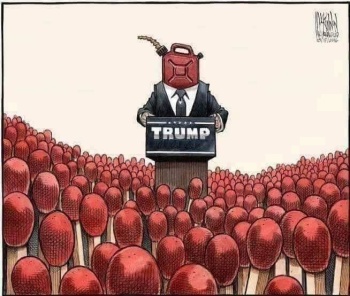
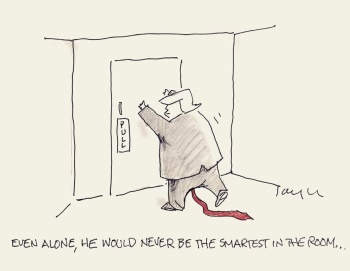

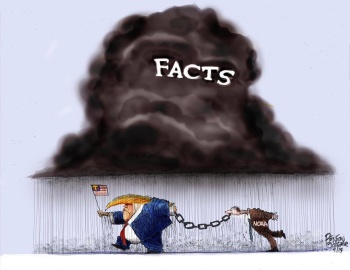
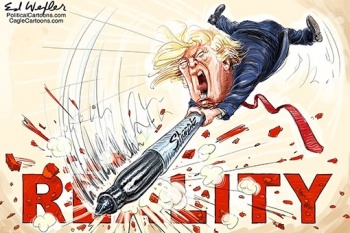

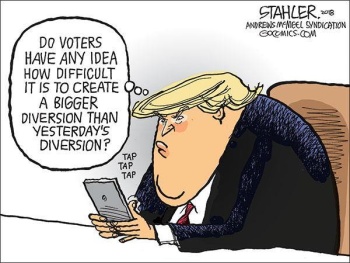

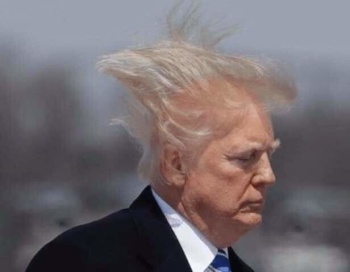
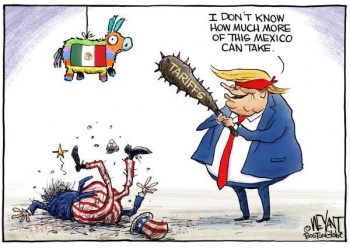










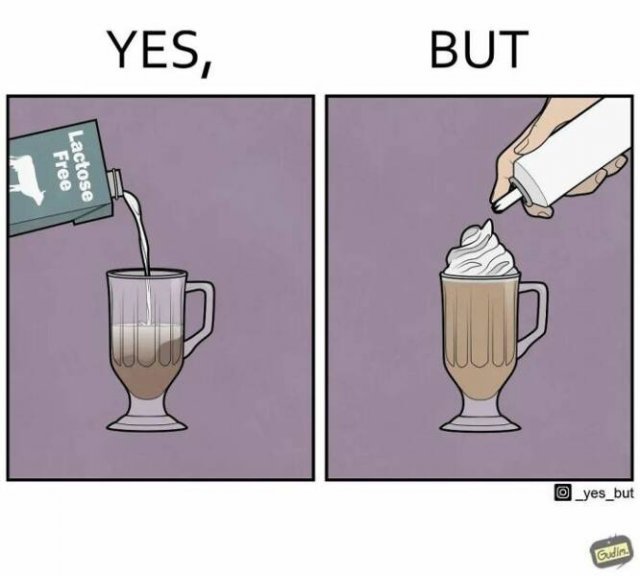

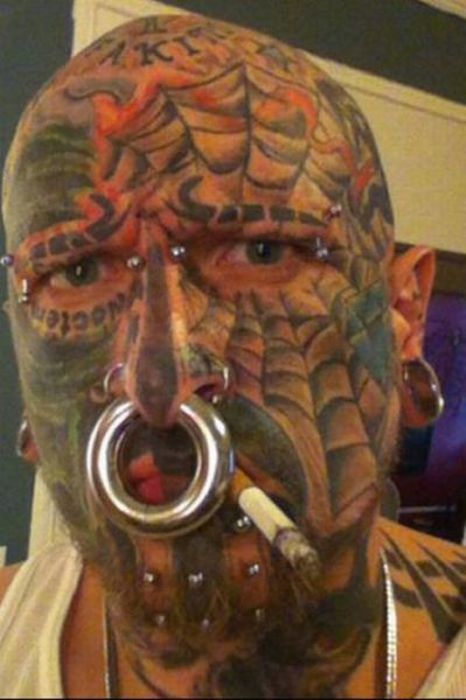
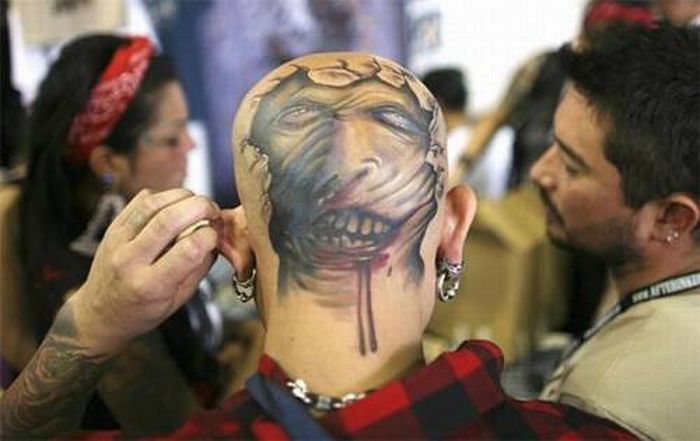





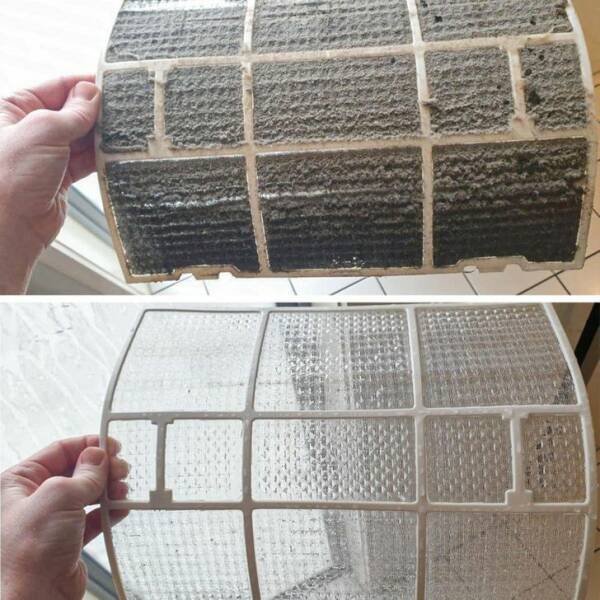
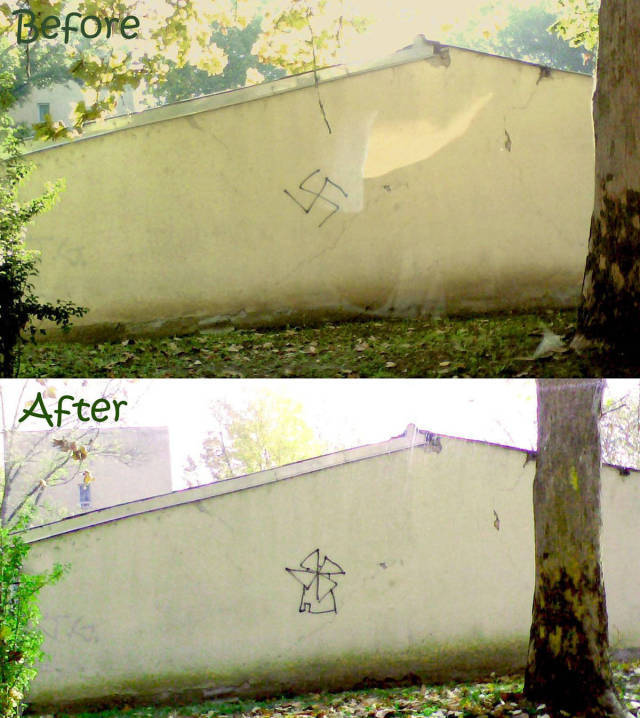

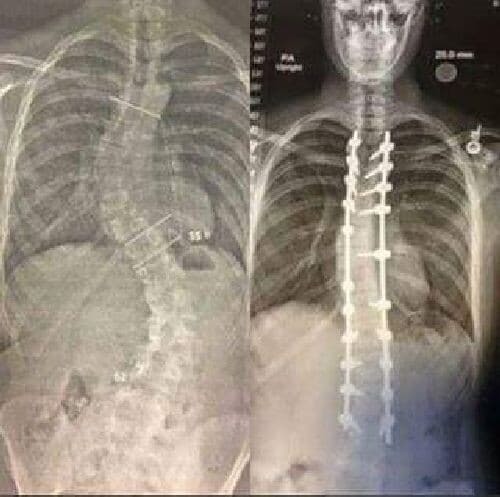


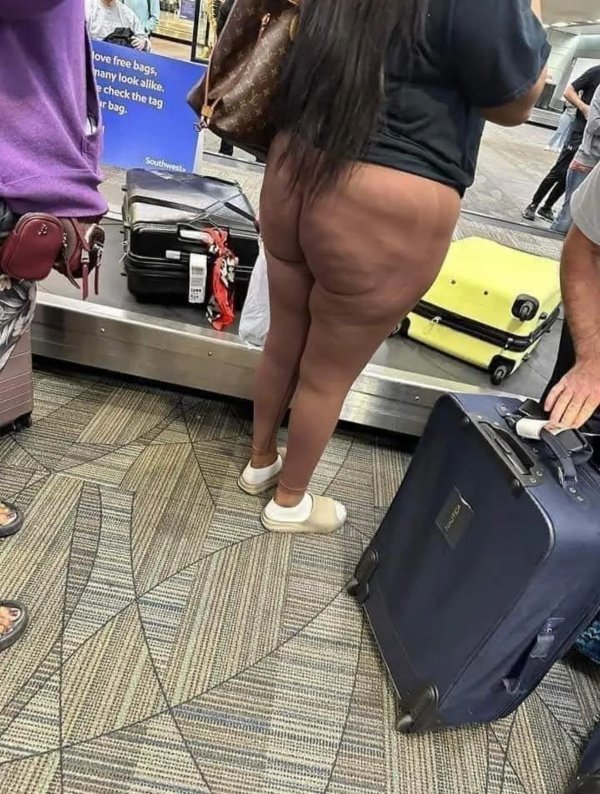
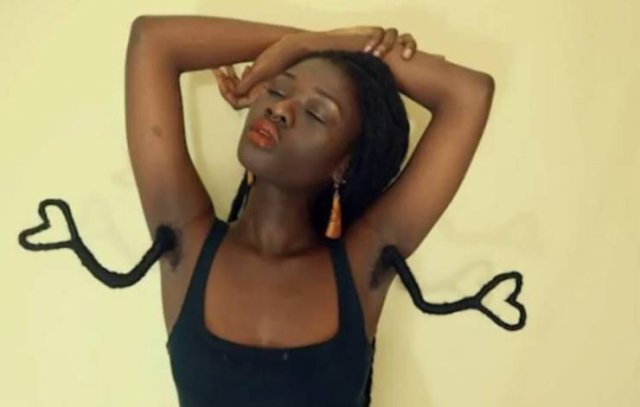
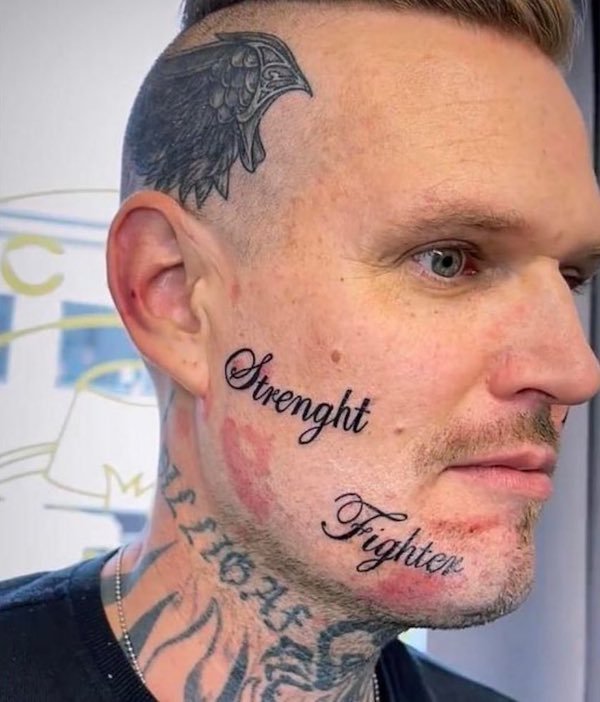

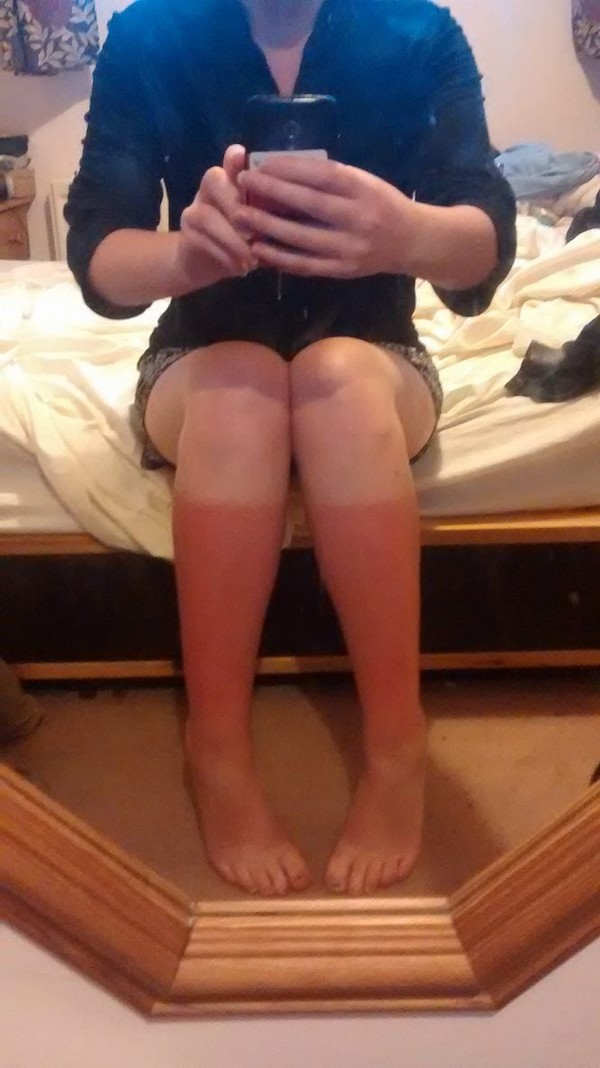

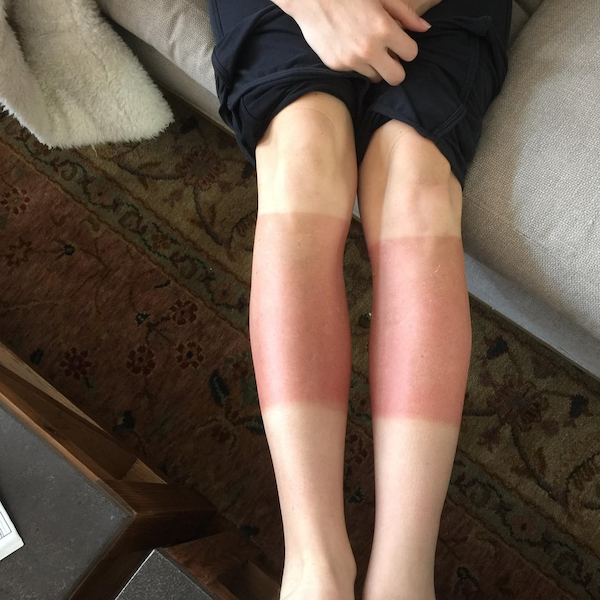
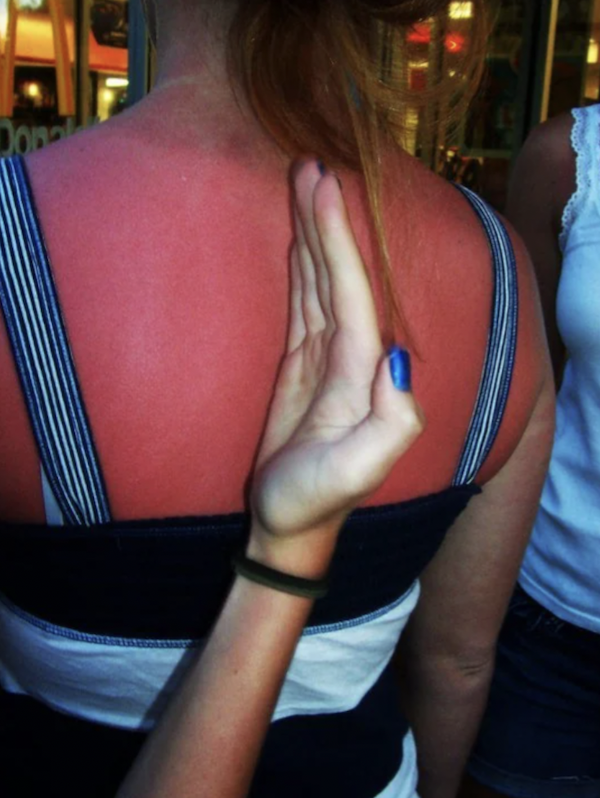

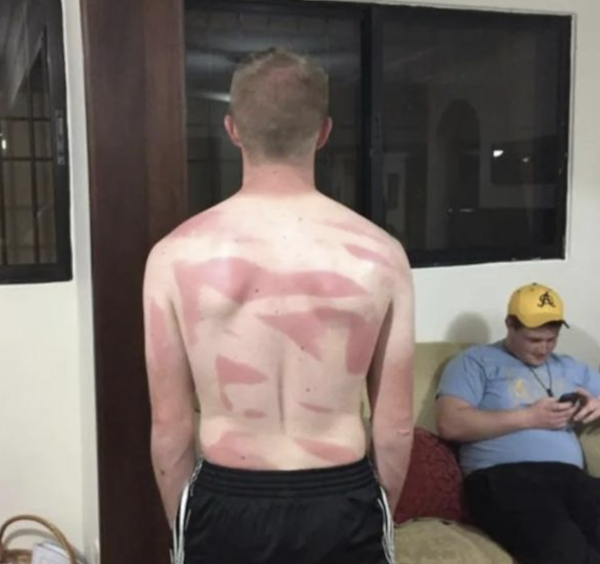
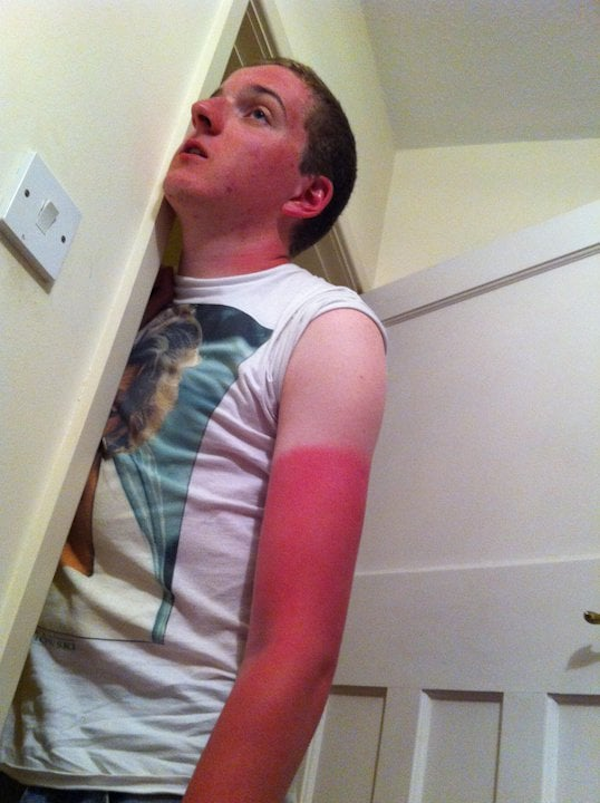
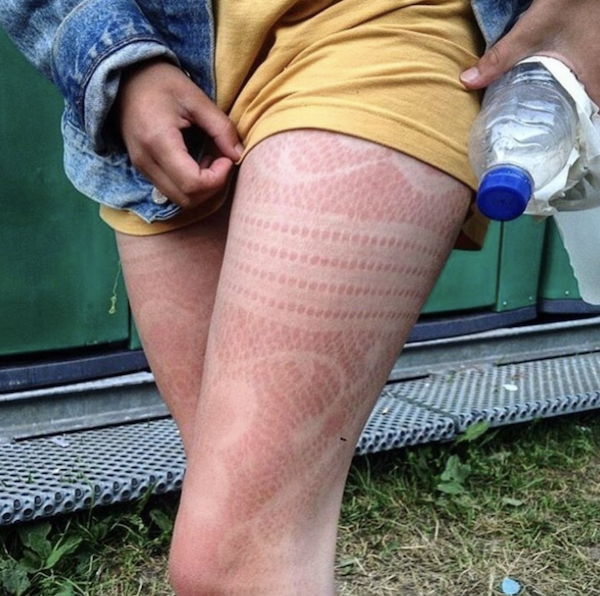








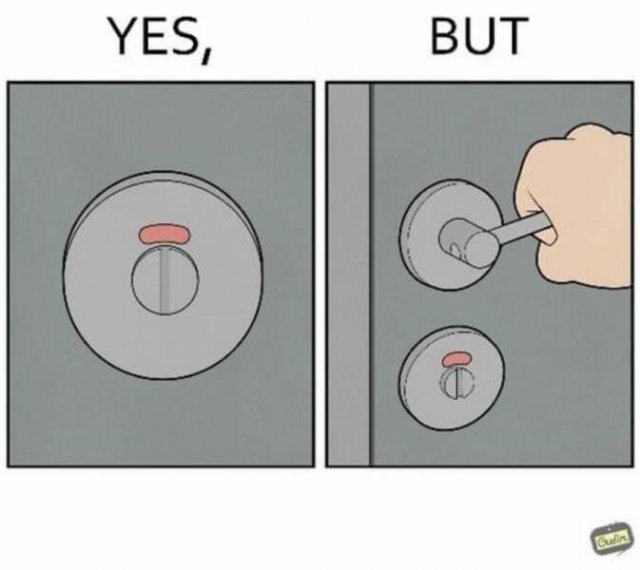

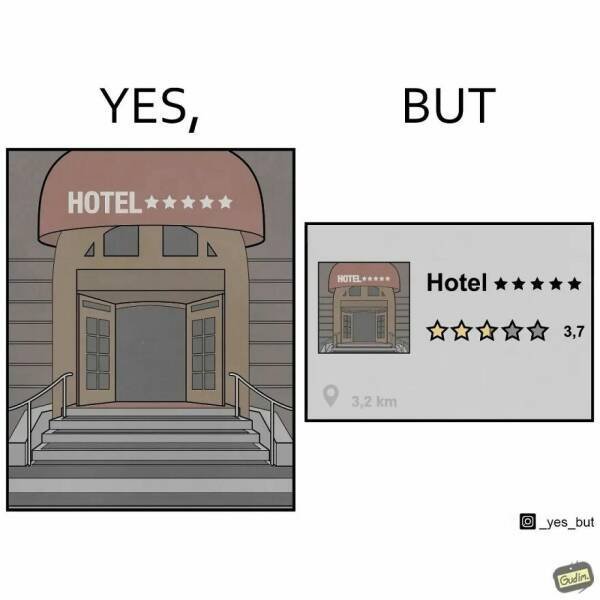

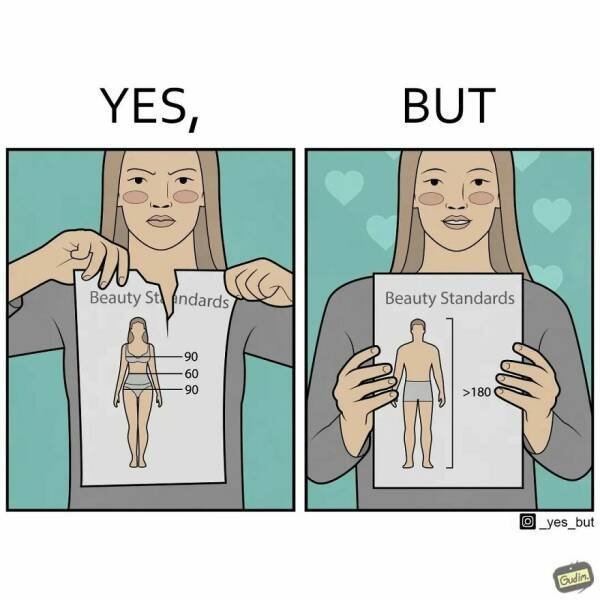


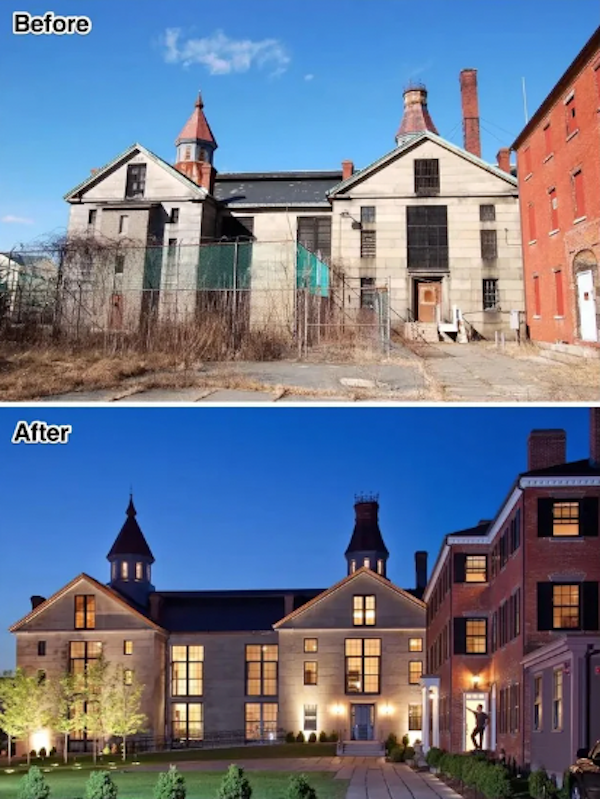














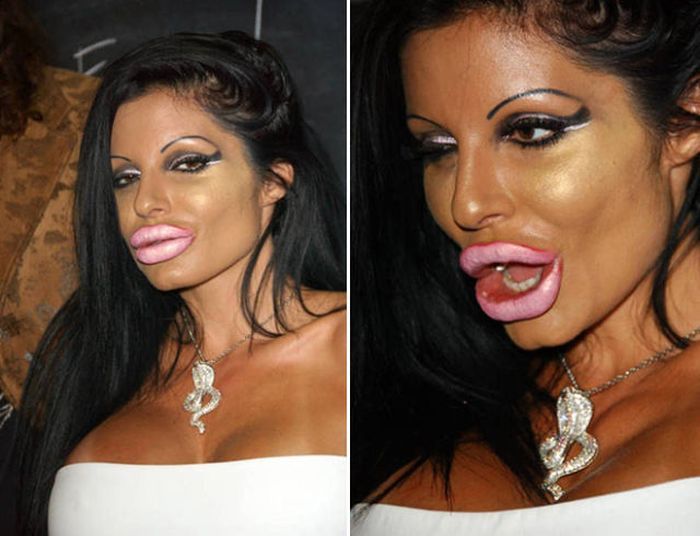

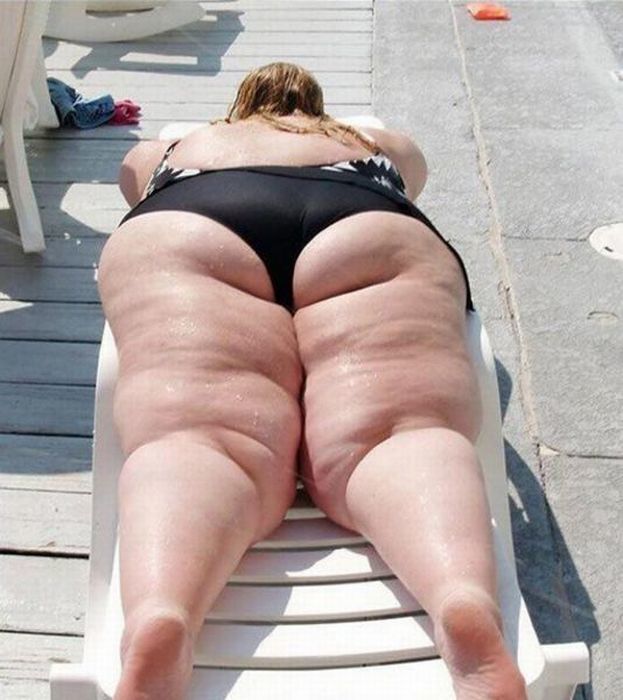
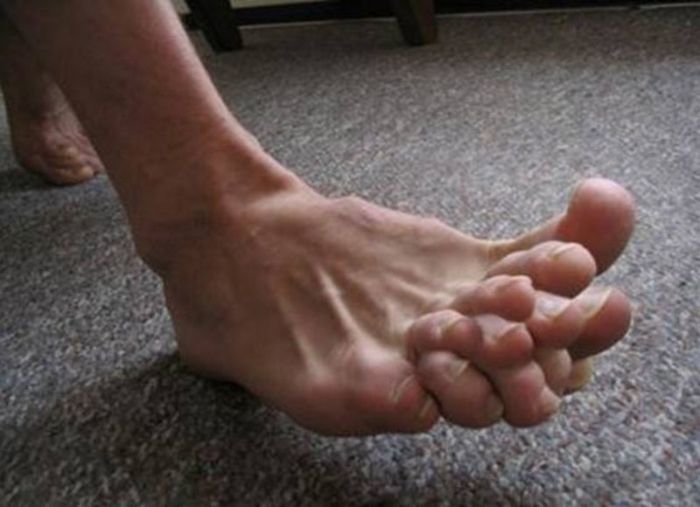

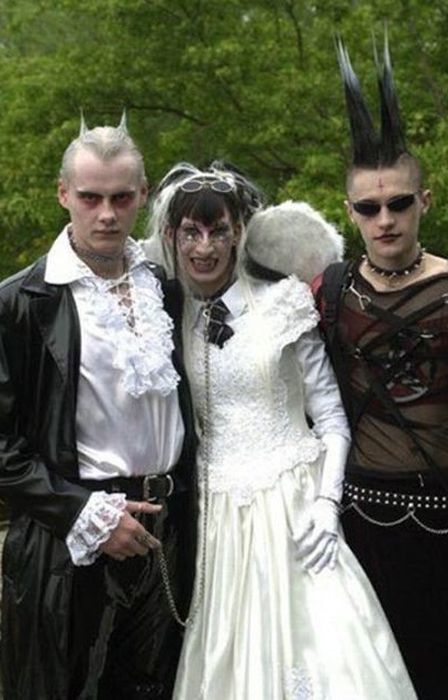








» *POPULAR CONTENTS* Valley of the SUN Official Newsletter
» Hay tarps
» OTHER WHATSAP APPLICATIONS
» INTERESTING FACTS * What's illegal to wear in 20 countries? *
» YOUTUBE SHORTS WWE...26
» HEY DØVYDAS 2 PAGES
» YOUTUBE SHORTS ANIMALS ONLY...6
» YOUTUBE SHORTS WWE...25
» BRIGHT SIDE...3
» YOUTUBE SHORTS MUSICIANS ONLY...11
» YOUTUBE SHORTS OFF THE WALL...23
» WWE FULL MATCHES
» LET's GO SHORTS & GIF's...11
» YOUTUBE SHORTS SPORTS ONLY...8